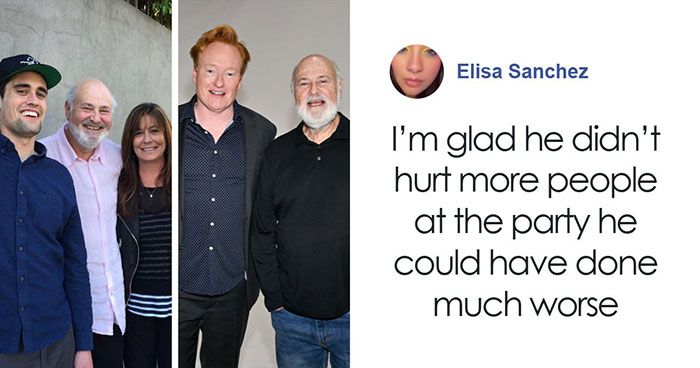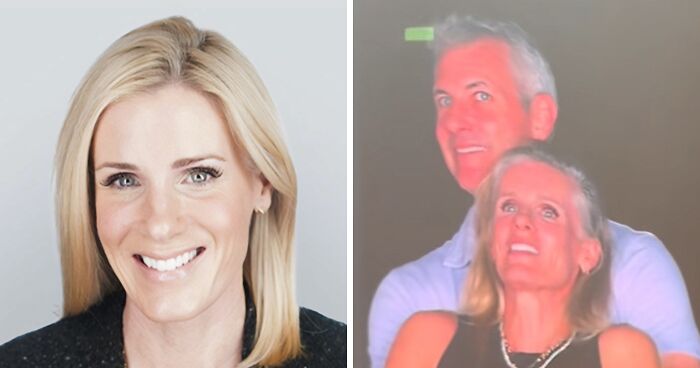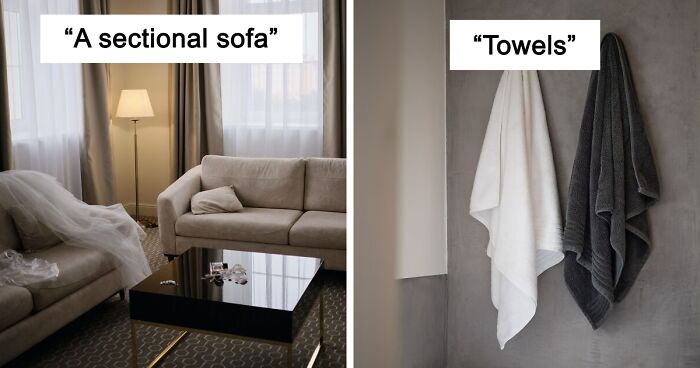
People Who Come From Low-Income Families Reveal What 30 Things They Considered An Absolute Luxury
Money doesn’t buy happiness, but having money can certainly make life easier. While some people are concerned about saving up for a lavish summer vacation, others just want to buy groceries and pay medical bills without risking being unable to pay rent. This week, Reddit user ConAir161057 reached out to Ask Reddit to hear what people who grew up without much money consider luxuries. We’ve gathered some of the most eye-opening responses for you to read below, some of which are great reminders to never take what we have for granted. Don’t forget to upvote the answers you found most powerful, then let us know in the comments what little things feel like luxuries to you.
Then if you’re interested in another piece featuring people from humble backgrounds, check out this Bored Panda article next.
This post may include affiliate links.
During the first few years of our marriage, my wife and I combined, made about 17k per year. It was ROUGH. Now we make just over 100k per year, and I still stop once and a while and think to myself "Wow, when was the last time I even had to check our balance to make sure we could buy groceries? This is AWESOME!" Just the little things of not having to worry or double check before you pay for normal purchases is SOOO much better. 'Money doesn't buy happiness'? Yes, Yes it does. You've just never been truly poor if you think it doesn't.
And for some, security = happiness. I can 100% honestly state the following as a fact! I am much happier with money than without it.
Load More Replies...Explain irony....when you are so poor and so stressed out as to how you will make ends meet that it makes you sick all the time. But you can't afford to go see a doctor because it costs money you don't have. You don't make enough to pay for medical outright, but you also make too much to qualify for free healthcare. Now that we are making decent money and have good healthcare coverage...we aren't sick anymore.....
Been there done that. now age pension at almost 80. All is good in my world
Load More Replies...When you go from being poor to being comfortable, your point of view changes. Money has brought a lack of anxiety to your life and that is happiness. Compare that to someone who has always been very rich, has never worried about having anything, and can't imagine 'saving up' for anything. Money cannot buy happiness for that person, but the lack of it could sure change his point of view.
Money doesn't buy happiness but it can free you from some of the things that cause stress and unhappiness.
There was a study on this, might try and dig it up, but it found money buys happiness to a point. I think people got happier until it hit like 70k a year and then happiness stayed more or less the same.
I read of a study which found that the rich as well as the poor tend to be unhappier, and those in between who are financially comfortable tend to be the happiest.
Load More Replies...Know that feeling too. I remember being laid off in the early 90’s and having $25 a week for food and gas leftover from unemployment insurance after paying bills. Rode my bike wherever I could to save gas for potential interviews. It is amazing how many fellow church people will ask you to babysit for free and not even offer gas money whenever you are unemployed.
I heard somewhere there was a study to determine the incomes of the happiest people, and it wasn't the ultra-rich. It was the mid to upper middle class. I don't have a link to the study, so I guess take this with a grain of salt.
Load More Replies...If I was rich I'd still be lazy... I'd just be lazy on a nicer sofa!
Money can't buy happiness is proven untrue . It get diminishing returns depending on your initial level of wealth. If you have no money making minimum wage that barely gets you to 15k a year suddenly gaining 10k is a massive windfall because that's nearly a year's worth of work. If you are a person who makes 150k a year 10k extra in you bank account is pretty nice but it won't have the same kind of "my god, everything is going to be okay". And If you make 1.5m you don't even notice 10k hit the bank.
I did the math though. If you wanted to save a million dollars in your life time, you have to put at least $500 in a high yield savings account (like 1.25%) every month for 78 years and never ever take any out for any reason ... I firmly believe that Boone will even need more than 10milion dollars in their life time . That's 100k every year to live on for 100 years of life.
Load More Replies...While money can’t technically buy happiness, it can buy many things that make our lives easier. Money buys us full stomachs, which allow our bodies to function properly and avoid feeling like we're in survival mode. Enough money allows us to nourish our bodies with fresh produce and healthy foods to keep ourselves in tip top shape and at minimal risk of health issues. Money buys us shelter and warmth, and therefore comfort. Money buys us experiences that add to our quality of life, like going out to see a movie or being able to take a vacation. Money buys us help when we need it, whether it’s a tutor so our kids can ace their SATs or therapy to keep our mental health in check. Money buys us vehicles and thus the freedom to get around. Money buys us resources.
In 2010, a Princeton study reported that money can buy us happiness up to a point. The researchers concluded that people are happier the more money they make, until their income reaches $75,000 a year. After that, there’s no significant increase in happiness levels. The topic is a bit more complicated than that, however, because more money did appear to buy more life satisfaction.
 After growing up in a home where every unexpected problem was a financial emergency, my idea of wealthy became "I just want enough money that if something breaks I don't get anxiety about how to deal with it."
After growing up in a home where every unexpected problem was a financial emergency, my idea of wealthy became "I just want enough money that if something breaks I don't get anxiety about how to deal with it."
This was by stages for me. At the beginning it's about rednecking something broken as cheaply as possible. And then eventually get it somewhat fixed and call it being temperamental. After decades of making do, these days I can afford to deal with it, if only I can find the time.
And it's about that time when you start to mentally calculate the cost of acquiring the materials and maybe any specific tools and what your time is worth and decide to hire it out to a pro.
Load More Replies...Two months away from complete ruin, if anything bad happens. Freedom! /s
Load More Replies...When I was in my mid-20s, someone hit my car and did about $3K worth of damage. The driver was poor, drunk, and uninsured. All my friends were angry and indignant on my behalf and kept encouraging me to sue (which was pointless, because the man didn't have any money). But all I could feel at the time was gratitude, because I realized that a few years earlier this would have been a huge financial crisis for me. But now I had the $3K in the bank, and all I had to do to make this whole stressful incident go away was write a check and rent a car for a few days.
For a while every time some money came in, something would break. We got in the habit of putting all of the overtime or any surprise money straight into the savings account. Suddenly, when something broke, we had the money on hand to fix it. What a freeing feeling!
I don't have to play the "which utility is getting shut off THIS month and how can I get it turned back on again?" game anymore. That s**t scars you as a kid.
Yeah, I live with that anxiety. I'm really handy though bc only rich ppl can afford to be useless. But I'm surprised at ppl who can't fix a bike tire or doesn't mend their clothes. It's painted as something heroic for the environment but for me it's just something you do. Or ppl going "you can actually use towels more than once, it's environmentally friendly" 😂😂 Is there really ppl who use a towel once and then wash it?!
If your first thought is that life satisfaction and happiness sound synonymous, I would have to agree. The difference is specified by the researchers in the original study noting that well-being can be broken down into two aspects: emotional well-being and life evaluation. Emotional well-being focuses on “the emotional quality of an individual’s everyday experience” while life evaluation “refers to the thoughts that people have about their life”. Happiness is about how you feel while life satisfaction is about what you think. According to the study, happiness is not likely to increase even if someone’s salary is well above $75,000 a year (also keep in mind, that amount in 2010 would be about $100,000 today), but life satisfaction can continue to increase with higher income levels.
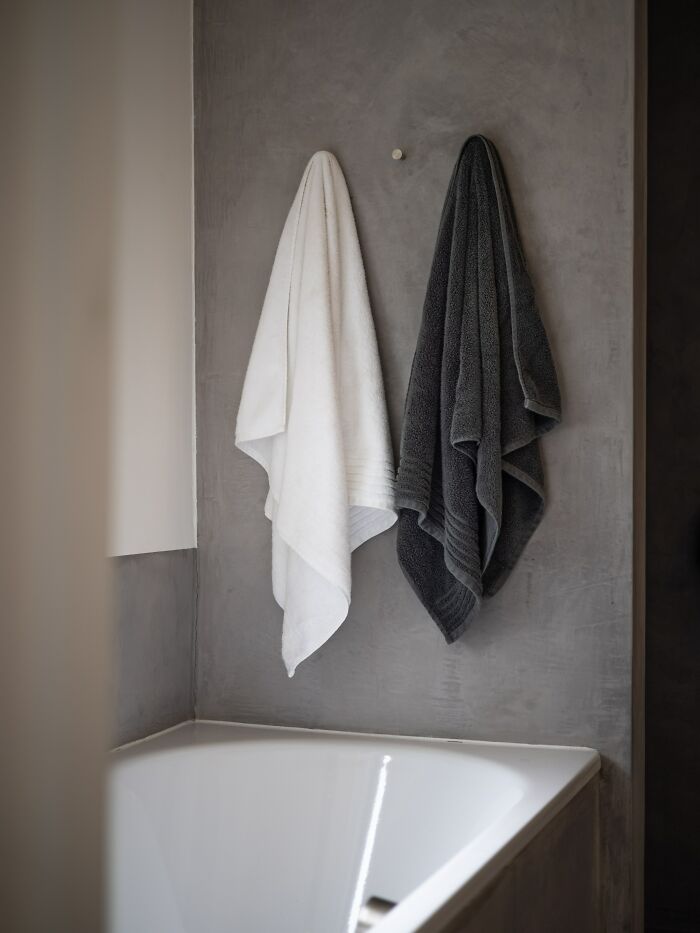 Towels. Honestly, I was almost 10
When I realized people didn’t just put back on their dirty clothes after a shower because my family was so large (12 kids total including myself) and extremely poor. I thought towels were just for hotels or were maybe a prop on television. I went to a friends house and she asked for my help folding her towels. I remember laughing and thinking she must be rich. Long story short, I wasn’t sure which way to fold the towels, and begged my mom to buy them after I revealed that my friend, Simone, had them. She bought a box of used ones from a local auction and I walked around with them on my head feeling like a frigging empress after that, even though—-let’s be clear…these were second hand towels! 😂
Towels. Honestly, I was almost 10
When I realized people didn’t just put back on their dirty clothes after a shower because my family was so large (12 kids total including myself) and extremely poor. I thought towels were just for hotels or were maybe a prop on television. I went to a friends house and she asked for my help folding her towels. I remember laughing and thinking she must be rich. Long story short, I wasn’t sure which way to fold the towels, and begged my mom to buy them after I revealed that my friend, Simone, had them. She bought a box of used ones from a local auction and I walked around with them on my head feeling like a frigging empress after that, even though—-let’s be clear…these were second hand towels! 😂
This mom is a gem for recognizing how important the towels were to her kid, when she easily could have just said "we can't afford them".
That's the thing, though. Neither parent recognized that their family needed towels until one of the kids had to beg for them. And then they were able to find some they could afford, so it doesn't seem like money was really the issue. I actually found the story a bit disturbing. I thought you were being sarcastic at first about the mother being a gem
Load More Replies...I'm not judging anyone's lifestyle, by all means have 12 kids if you can afford them. There's birth control, if you cannot afford basic necessities like hygiene, then you should not have that many kids. It's not fair to them.
If the family was that poor, it is highly possible they also lived in an area where access to preventative medical car, including birth control, was limited if available at all. The OP also didn't say how old they were now, so depending on when and where they lived, and their faith, reliable birth control might not have been an option.
Load More Replies...How f*****g irresponsible to have 12 children you can’t even provide a towel for.
Not to be judgmental, but your parents maybe shouldn't have had that much children if they didn't have a lot of money? Or was it an assimilated family (is that how you call that)?
I don’t understand why you were downvoted, I agree with you. 12 is a lot of kids, especially when you are this poor.
Load More Replies...Towels? Do you mind me asking, how did you dry yourself after a shower? I'm asking because we had the same problem when we went to Hong Kong. There were no towels in the flat we rented, and we didn't find any in the shops, so we used tea towels instead.
From re-reading it,it just appears they put their clothes back on ans it dried on them...
Load More Replies...My neighbors moved a year ago and while picking through the trash they put out I got 2 awesome working lamps and 10 huge almost new bath towels. I washed them well with bleach and replaced my 30 year old towels with them. The old towel became the dogs towels. It must be nice to have the money to just throw good stuff away, I've never been able to do that.
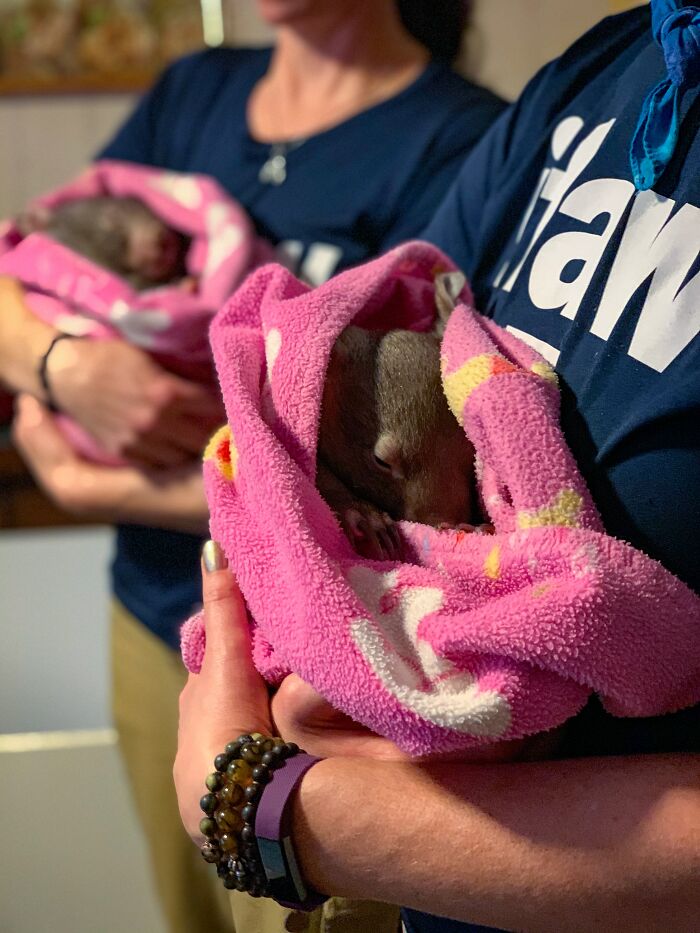 saving the life of a pet because i could afford to pay the vet
saving the life of a pet because i could afford to pay the vet
If you are struggling with finance, please for the love of all that is saint, don't get pets... I get it, pets are cute and helpful but they are yet another responsibility that you can't properly care for
Some people get pets when they *can* afford everything that pet needs... and then they fall upon hard times (lost job, disabling injury, etc.). I was one of those. A decade ago, I chose to become homeless rather than give up my dog because I couldn't find a place that would also accept *her*. I had already had her for two years, and I was her third home. I was NOT going to put her through that trauma again. And I sacrifice for my current dog as well. He gets what he needs, and I do without computer, TV, and other frills.
Load More Replies...Yeah....that was a thing growing up, we had countless dogs we couldn't save so dad would take care of them. They got ran over we couldn't save them and dad didn't want them to suffer but it broke his heart. It was very very sad.
Tbf most people would go bankrupt if we had to pay full price for our own medical issues. I can't even afford co-pays for myself so I just don't get medical care. But pet procedures and medicines cost less. There are also lines of credit for pet care. Some veterinarians also by default have an automatic credit. So please at least try to get them care. One is CareCredit, just try to get it paid off in 6 months or less.
CareCredit has saved 3 of my cats!!! Not all at the same time but still!! And I was able to pay over 6 months!! I would do anything for my cats and CareCredit made it possible!!
Load More Replies...while I agree with your general statement, there's a difference between routine care and emergencies. nobody expects their pet to get cancer, break limbs, be poisoned, etc.
Load More Replies...A lot of people here are saying don't get a pet if you can't care for one. And I agree, in theory. But a lot of you have not been *really* poor, in neighborhoods or small rural areas where starving strays are common and shelters kill due to capacity. Families giving scraps out to strays and caring about them enough they become "outdoor pets" are common. It's still heartbreaking not to be able to save them. Unless you're actively caring for strays, less judgement please.
Please, please, please don't get a pet if you can't afford vets bills. I know this may sound harsh to some people but hear me out! I had cats when my children were young, I'm not a pet person myself but understood the value of pets for children. One of the cats Missy, went off to live with one of the neighbours despite me spending many hours/days/weeks trying to persuade her to come back, she preferred the neighbours home. She would still visit every day and stay for a few hours before she went off to her "new home". One day she didn't turn up, I went to the neighbours to check if she was okay only to find out she had died during the night 😭. It turned out that Missy had been hit by a motorbike the day before and the neighbours had made a non emergency appointment at the vets for the next day because they couldn't afford the out of hours, emergency vet treatment 🤬. Poor Missy must have suffered hours of agony and suffering before she died, I never forgave the neighbour.
More recently, however, a 2021 study challenged the 2010 idea that happiness related to income reaches a cap. In fact, this study found that “there was no evidence for an experienced well-being plateau above $75,000 [a year]”, and “no evidence of an income threshold at which experienced and evaluative well-being diverged, suggesting that higher incomes are associated with both feeling better day-to-day and being more satisfied with life overall”.
A review of this study by Giving What We Can also addresses the concern that happiness is probably also determined by what you’re spending your money on. It’s recommended to be a conscious purchaser, spending less money on material items and more money on enriching experiences. It also may be beneficial to "buy many small pleasures rather than few large ones". The review warns readers to be cognizant of how purchases affect them and to “pay close attention to the happiness of others”. If you're purchasing an expensive car because you don't like comparing your 2005 Honda Accord to you're neighbor's new BMW, you probably won't feel satisfied after your purchase. But if you splurge on a month-long trip to New Zealand experiencing a new culture and exploring the country's nature, your happiness actually might be increased.
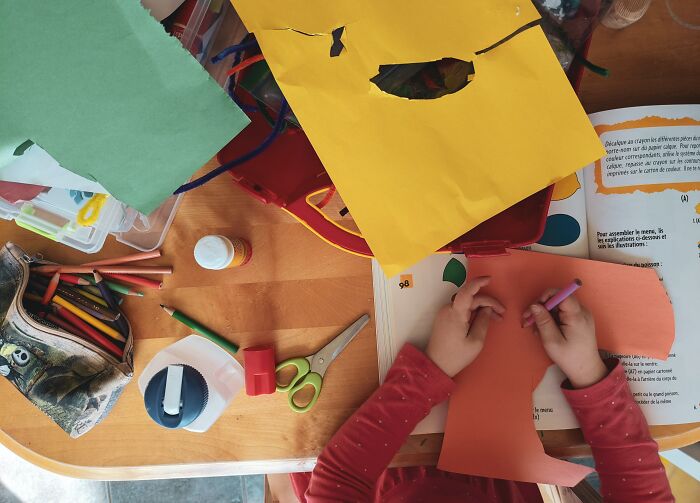 Just getting some god dang crafts, man. I was the kid you could entertain the rest of the night with popsicle sticks, glitter, and glue. You know what I never got to do? Crafts, because the only popsicle sticks we ever got were NONE, the glue was for school only ("don't let your friends borrow your glue/crayons/pencils we can't buy more 'til income tax!"), and glitter meant more electricity vacuuming it up.
I am now a grown woman with a craft room that sparkles like a dragon hoard. I make Martha Stewart weep
Just getting some god dang crafts, man. I was the kid you could entertain the rest of the night with popsicle sticks, glitter, and glue. You know what I never got to do? Crafts, because the only popsicle sticks we ever got were NONE, the glue was for school only ("don't let your friends borrow your glue/crayons/pencils we can't buy more 'til income tax!"), and glitter meant more electricity vacuuming it up.
I am now a grown woman with a craft room that sparkles like a dragon hoard. I make Martha Stewart weep
I have no income but anytime I get extra I go to the dollar store and get what I can for crafts for my grandson. He is the same way. He will spend hours making things with just a few items and popsicle sticks.
Anything that we felt deprived of in childhood brings us huge happiness as adults. Not that any of us were that deprived. We just thought we were because that is what kids do.
Growing up my mother wouldn’t by arts and craft things for my twin sister and I. It was a waste, she said. Even if it was for a school project. I had to scavenge through the recycling for anything to use. I always felt ashamed of my work next to those of my classmates.
This is absolutely me. We didn't have electricity & running water half the time and we never had all of the items from our supply list (the one that schools sends out to parents of minimum materials required). So I learned to sketch with my father's carpenter pencils, and learned to make really cool things with kitchen shears & paper scraps. Now, I have more craft stuff than I ever could've dreamed!
I will wear the same leggins until they have holes in them, buy no makeup, get my hair done etc...so I can have my craft supplies.
My daughter in law had a large craft drawer when my granddaughter was younger. It was stuffed with c**p from the dollar store and that drawer could keep her and some friends entertained for half a day. Spread out a big blanket and set the drawer out. it was great!
 I am from a small island in the Pacific. While I mostly still take cold showers, I have always felt that a hot shower is the finest luxury one can experience. I had my first hot shower when I was 22 years old and I can never forget it.
I am from a small island in the Pacific. While I mostly still take cold showers, I have always felt that a hot shower is the finest luxury one can experience. I had my first hot shower when I was 22 years old and I can never forget it.
Wow, thats sad. When we go camping we get to have warm showers thanks to the sun. We leave our big tub of water out in the sun all day so by the afternoon we get a warm shower. Could something like this not be done in areas without hot water access?
It depends on the climate and if it’s worth the effort. I lived in “small island in Indian ocean” and the hot water tank was tiny but when the hot water run out it was still kinda lukewarm to warm, totally tolerable compared to “cold water” anywhere I’ve been in Europe.
Load More Replies...Decent, potable water is a luxury in itself in way too many parts of the world.
We lived "off grid" for a while because we couldn't afford rent on a regular place. To have a hot shower you had to cut firewood and build a fire in the wood stove (which heated the water). Shower pressure was gravity fed so very poor and dam water level was low so showers were extremely short. Mostly we just swam in the dam and rinsed with a hose.
My Mom grew up on a farm where they pumped water and took baths in a metal tub in the kitchen. For her entire life, she took baths in 2 inches of water because 'That's all I need to get clean'. After her hip replacement, she had to switch to showers. But her showers were very short and in slightly warm water. She grew up during the Dust Bowl, The Great Depression and WWII, and it showed.
Personally, I hate hot showers. I prefer lukewarm water, but if you like hot, more power to you!
I feel for this; In BD we sometimes used rainwater... Good thing there was plenty.
I remember nanna boiling the kettle to add to the snow so we could have a bath in the kitchen, Nanna & Grandad went first and 2nd, Then mum, then dad, and one after another, all 4 kids, I was so glad I wasn't the youngest. And everyone used the same towel.
I read this one to my husband who lived in Vietnam as a child, and he realized he didn't have a hot shower until he came to the US at age 8. Before that, everyone bathed using a bucket of cold water and a cloth.
Some particularly cold individuals use the adage “money can’t buy you happiness” as an excuse to turn a blind eye to others in need. “Why give the homeless woman at the intersection a $20 bill? It won’t buy her happiness.” Or sometimes affluent individuals perpetuate the misconception that poor people are actually happier than the wealthy because money buys you problems. But as Borgen Magazine so kindly points out, “Even the World Happiness Index ranks the high-income countries as the happiest.” As of 2016, the “happiest” countries in the world were Denmark, Switzerland, Iceland, Norway and Finland. Meanwhile, countries at the bottom of the list included Afghanistan, Togo and Syria. While not everyone needs to live in a two-story home with a pool in the backyard, there’s no question that being able to afford basic necessities increases quality of life.
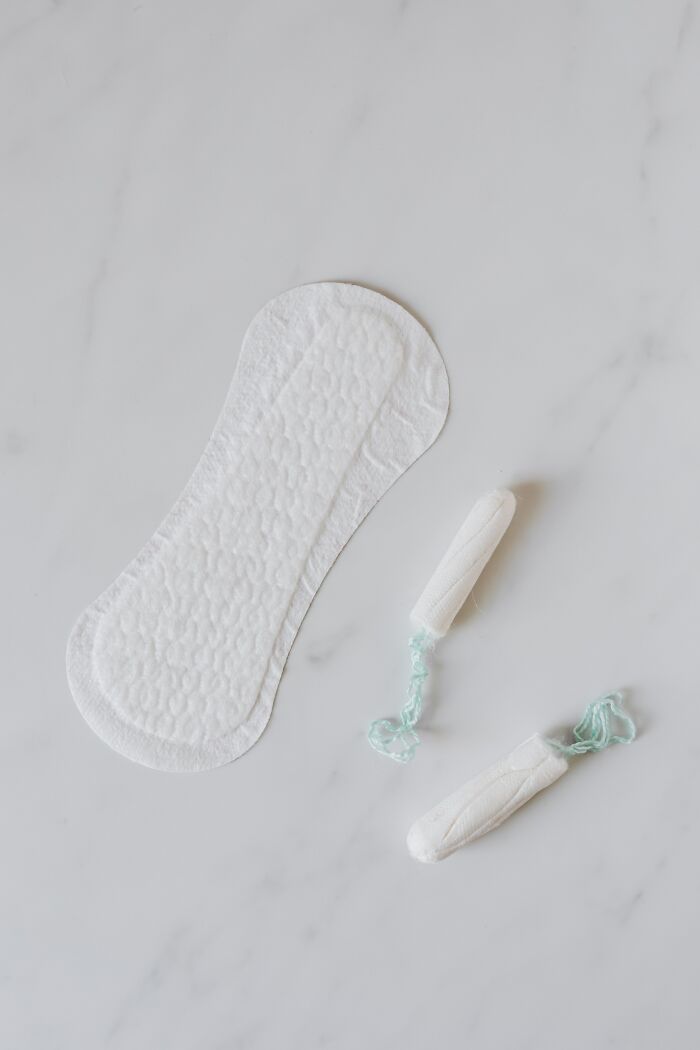 When I was able to afford pads or tampons. Growing up, I had to steal toilet paper from my school during my cycle.
When I was able to afford pads or tampons. Growing up, I had to steal toilet paper from my school during my cycle.
That was so embarrassing when it would fall out during gym class and you had to go to the office to call your folks and tell them to bring fresh undies.
This exact thing happened to me when I was 12 and the “female” gym teacher made of point of letting everyone know. I thought I would die
Load More Replies...Please make pads and tampons free. It's a necessity for most women out there and these are genuinely too expensive for some people.
I am so happy that at my school they have tampons and pads in a basket by the sink, and whenever we need a refill we just take the basket to the office.
Load More Replies...Scotland is the first country in the world to offer free sanitary products .. we ended period poverty. Something I’m really proud of my little nation for !
This is heartbreaking and just horrible! Girls/women can't help being female and can't help having periods, sanitary products should be free, girls actually miss school cos they can't afford sanitary products. Makes my blood boil!!
That is a product that you should be able to buy with Food Stamps (EBT). Feminine hygiene products are so important to young women especially. I have had to borrow them from friends who knew I would never repay. My sister used old socks that she could wash and re-use. I think that the school nurse has some to hand out. But really! Families at or below the poverty line should be able to buy feminine hygiene products, soap, shampoo, Toilet paper, etc with their tax payer provided benefits. You just don't realize it until you live it!
On one hand, yes, but on the other hand, now you have women getting less nutrition because they're spending their food stamps on feminine hygiene products. There should be a separate fund for toiletries like soap, shampoo, laundry detergent, toothpaste, feminine hygiene products, razors, toilet paper, etc.
Load More Replies...They should have free dispensaries for these in the womens bathrooms ( and as a step up put them in the mens too for trans men)
As a trans man I love you for this ajffkkkckkvkv
Load More Replies...In Scotland, these are free. As are prescribed drugs. What a time & place to be alive. I love Scotland.
I'm so glad I got my menstrual cup (is that the right word?) It saves tons of waste and loads of money. And I got less health issues during periods...
Menstrual cups are great, but when someone can't afford pads and tampons, they can't afford cup. Also, some people find cups uncomfortable.
Load More Replies...I started donating those items to my local shelter...it seems so obvious, but it never occurred to me how little of those items get donated.
This is why we need to ensure these products are in public bathrooms, Free and Stocked. I hope to see this one day everywhere, so no girl has to suffer the same kind of moments. 💛💛 May good fortune in always find you in the future NurseDani314🌱☘️
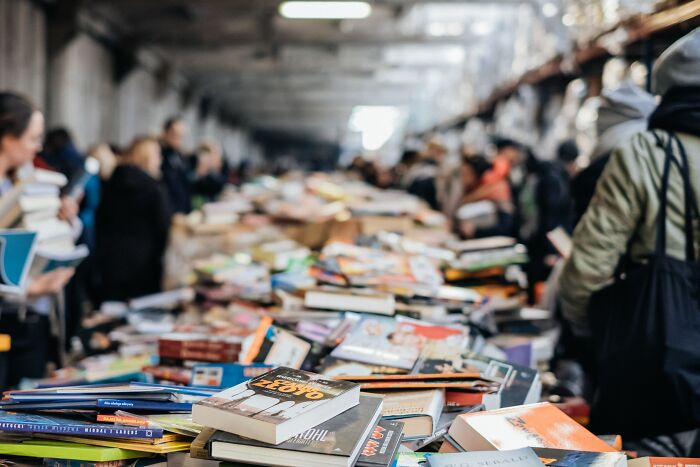 $5 to spend at the book fair. I never let go of that one and now I send my kids off with $40 to spend at the book fair with the idea that my kids will walk out of there covered head to toe in book fair drip after telling their middle school crush "just get whatever you want, it's all on me."
$5 to spend at the book fair. I never let go of that one and now I send my kids off with $40 to spend at the book fair with the idea that my kids will walk out of there covered head to toe in book fair drip after telling their middle school crush "just get whatever you want, it's all on me."
I had a love/hate relationship with book fairs. I loved looking through all the new books, but knew I couldn't buy any. I remember coming up with excuses when other kids would ask me why I didn't buy anything. When my son was in school, I sent extra money with him, and told him he could buy a book or two for another kid, if they couldn't afford it.
Same. I was/am a HUGE reader and can only remember being able to buy a book at the book fair one time. It was so hard. :(
Load More Replies...I regularly spent my lunch money, when I had it, on book fair books. For decades, I saw this as a point of pride, and it mirrored my undergrad experiences, when I often had to decide between a Taco Bell meal or a used paperback of that Thomas Hardy novel for class. Now it just makes me sad. I remember overhearing the students whose parents just... handed them money for books, and it blew my mind.
My sisters and I got to go outside with the school secretary and play during book fairs, field trips, and when they had the "school store" open. She knew our situation & really liked my parents, so she went out of her way to make it fun! I never felt poorly about not going, because we had a blast. She would make us this amazing popcorn and spoil us with fun projects!
Load More Replies...I wish I'd had money for book fairs...I wonder if I would have had the school actually informed my parents of them in advance. Book fairs for me were just going down to the library randomly one day and staring at tables full of pretty things I couldn't buy.
I was lucky that my school had a ledger that you can basically give them money in advance so that when the book fair came to school you already had a set amount prepaid that you could buy books with.
That is absolutely BRILLIANT! I think I will suggest that to my local elementary schools (I don't remember whether our middle school does book fairs, but I'll mention it to them as well). Thank you for sharing that with us!
Load More Replies...a teacher in our neighborhood school asked the folks in our Facebook group if we would sponsor a kid to buy a book from the scholastic flyers every month. All the kids got covered, and enough was had for a nice hardback at Christmas and summer break.
Oh, man.. we had those book faire pamphlet thingies where you could order stuff. We were never able to get anything and it was always so terrible to sit there as the names would be called off for kids to come get their goodies at the front of the room.
Circling the ones in the catalogue was as far as it went for book fair, actually having any money for a book, nah.
I totally forgot about that, i loved circling the books! Didn't get any of them but it was nice to dream
Load More Replies...It used to break my heart when I had to tell my daughters I couldn't afford to give them book fair money...I have never been able to afford many extras, but this one slayed me...they wanted a BOOK, not something that would rot their teeth or their minds.
 Going to the grocery and feeling able to buy pretty much anything I want within reason.
I still compare cents differences in name brand vs. store brand vs. sale items; or do I really need this?
Going to the grocery and feeling able to buy pretty much anything I want within reason.
I still compare cents differences in name brand vs. store brand vs. sale items; or do I really need this?
And mental acrobatics to figure out which is the best bang for your buck. Normal people would not get how we can do these calculations in our heads. When it's a matter of having enough money to eat or not, you better get good at running numbers.
Yeah, but just don't try any Paper Towel Math unless you're a true professional. (Paper Towel Math, i.e., "6 Jumbo Rolls = 12 Extra Rolls!" or "3 Family Size Rolls = 8 Mega Rolls!")
Load More Replies...I live in a state that charges tax on food and always had to round up the cost to make sure I had enough money. Tax on food should be illegal.
Oh, this! and knowing how long it took each store to cash a check so you knew exactly how far you could safely float. You also knew which stores would allow you to write a check for gift cards so you could get one for the gas station.
Even when we do have the money, we are judicious shoppers. I doubt if I will ever get to the point where I shop with abandon. I have been grocery shopping with a wealthy woman who just tossed stuff in the cart as she saw it. It was $450 worth of groceries when $200 would feed a family of 4 for a month. When we were putting it away, she already had 3 or 4 of some things. When I pointed that out, she just threw away the old duplicates. I should have snagged them from her, but I was too flabbergasted. This was my boyfriend's mother and I didn't feel comfortable asking for her discards. I should have.
You could have saved the embarrassment and said something like ‘I don’t like food going to waste, I’ll take them if you’re throwing them out’. Then it doesn’t look like you can’t afford them, just that you hate food waste.
Load More Replies...When I was a kid and we needed new clothes, my mother would march us straight to the racks of "reduced for clearance" stuff in the back of the store. We'd be scolded if we even turned our heads to look at the regular-priced clothes we passed along the way. I'm still a bargain shopper when it comes to just about anything else - groceries, furniture, etc. But I just can't bring myself to spend hours at the mall sifting through rack after rack of picked-over, out-of-season clothing any more. I did too much of that when I was younger.
Things you do anyways to know if your allergic to something in the food or not.
Going to the grocery store and not being terrified the checks going to bounce. My mom always had to write bad checks for groceries and checking out was horrible and anxiety ridden. It was so embarrassing when it would bounce and she'd have to tell them she had no other way to pay so they had to put everything back. Going home with no food was worse than the anxiety and embarrassment though. I appreciate being able to get all the groceries I need and want and having the money to pay for it now
Maslow’s Hierarchy of Needs is a great example of how money contributes to our levels of happiness. While physiological needs are at the base level of the pyramid (including food, water, clothing, warmth and rest), money can actually solve most of those issues for us without a question. Rest can be a bit trickier because factors like insomnia and mental health issues can come into play. Or maybe a person’s job is inhibiting them from being able to get a proper night’s sleep, due to working overnight. But if someone needs medication to help them rest, that can be purchased. Or if a person's job isn’t allowing them time to sleep, they probably could avoid that problem if they made enough money to work less hours. Or they could take a lower-paying job with better hours, if they didn’t need to be so concerned about finances.
 When my grandma would come pick me up and spoil me. My parents didn't have much money and were addicts so when my grandma would come get me I would come back with new clothes, video games, toys, etc. I used to think my grandma was rich but she actually just had a stable income.
When my grandma would come pick me up and spoil me. My parents didn't have much money and were addicts so when my grandma would come get me I would come back with new clothes, video games, toys, etc. I used to think my grandma was rich but she actually just had a stable income.
And hopefully the parents didn't take the stuff and sell it to feed their addictions.
What I thought. Plus what the hell were they even kept with the parents?
Load More Replies...Every September, my grandma would take me to JC Penney's, where I got to pick out school clothes. I would get a new pair of jeans, a few tops, and (oh, the luxury!) something special like a swishy skirt or trendy sweater to wear on the first day. For the year, I would have one pair of jeans, one pair of shoes, and if anything happened to them, well, I was out of luck. I spent most of sixth grade being mocked for my "waiting for a flood?" jeans.
I feel you. The first time ever my mother bought clothes for me especially (I had two older, slimmer and smaller sisters whose clothes I usually got handed down, and it was the hip jeans period) was for the first week of boarding school. I still remember how luxurious I felt in that one yellow shirt that covered my whole lower belly, and the jeans that wouldn't cut into my hips. I'm so glad we got some financial aid that year and my oldest sister went off to college, so I actually got some money for clothes while I was in boarding school. I'm also absolutely pro school uniforms, but that's a ship that's sailed, at least here in Germany.
Load More Replies...Grew up with extreme food insecurities. What little food there was in the house was for my moms husband because 'he works '. My grandparents took me to the grocery store and said "What you see, whatever you want, you can get." After going through the entire store in shock and awe, I finally chose a cucumber and a tomato. To me, at 5 y/o, fresh foods were the greatest culinary luxury. I love my grandparents, may they rest in peace.
This was my life. My parents were both addicts and my grandma always spoiled me when I'd stay with her. She also paid our rent and utilities constantly and let us move in with her after my dad committed suicide. She was the best person I ever knew and I miss her so much.
This hits home. My parents were addicts and my 7 siblings and I were all adopted. The adopted home we moved into had stable income but "parents" treated us like the "trash" we came from. They just got a s*** load of money from us and used it for themselves. Our grandparents, both bio and adopted tried their best to spoil us when they could. Now, as a mom of two, my husband and I put our money towards them. We come last.
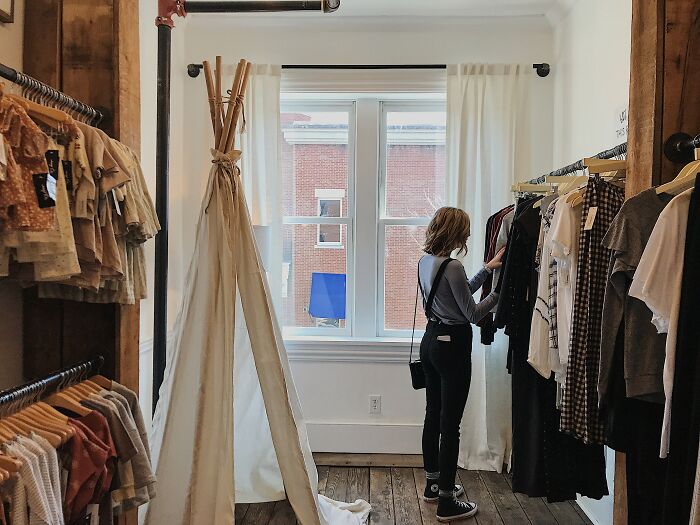 Getting new clothes at Christmas from relatives. I don't know if that is exactly a luxury or the kind of answer you are looking for, but we never had a lot of money when I was in middle school. I went an entire year wearing the same pants everyday. The funny thing was my parents didn't even buy them for me. I got them for Christmas from my Grandparents. All the kids use to give me so much s**t for wearing the same pants everyday. I always told them that I had 5 of the same pair which made me feel good inside and kind of made them ease off even though I know they didn't believe me.
I remember I fell on the school bus one day and the jagged floor cut a hole right in the knee cap and the panic that went over me was just insane. It was one of the worst feelings of my whole life because I knew that I didn't have any other pants to wear and that now all of the kids in my school were going to know that I only had 1 pair. Needless to say I could not wait for the last month of school to end.
Getting new clothes at Christmas from relatives. I don't know if that is exactly a luxury or the kind of answer you are looking for, but we never had a lot of money when I was in middle school. I went an entire year wearing the same pants everyday. The funny thing was my parents didn't even buy them for me. I got them for Christmas from my Grandparents. All the kids use to give me so much s**t for wearing the same pants everyday. I always told them that I had 5 of the same pair which made me feel good inside and kind of made them ease off even though I know they didn't believe me.
I remember I fell on the school bus one day and the jagged floor cut a hole right in the knee cap and the panic that went over me was just insane. It was one of the worst feelings of my whole life because I knew that I didn't have any other pants to wear and that now all of the kids in my school were going to know that I only had 1 pair. Needless to say I could not wait for the last month of school to end.
Clothes for school. I shudder at the thought. I had zero friends going thru every school year because of the way I was dressed.
That's terribly sad Bilegh Berrie. The stories in this thread are very painful.
Load More Replies...This is a good argument for having school uniforms. Everyone wears the same thing and they are unlikely to know if you only have one set. Plus they can often be bought second hand for cheap.
Here’s a “happy outcome” in this thread. Even though we lived on “the wrong side of the tracks” the women in my family were expert seamstresses (worked in garment factories) so my clothes were always nice. I the fourth grade there was a classmate whose family all lived in a two room shack (no running water or indoor plumbing) and she was pretty much ostracized. I liked her because she was smart and funny. She was also a couple sizes smaller than me, so when I outgrew several of my dresses, I was permitted to give them to her. Thirty five years later, my father was pulled over for speeding, and the officer turned out to be HER! When she read the name on his license she asked if he was my father and he told her yes. This was in a completely different city from where we had lived, and I was living over a thousand miles away. She told him that having those nice clothes gave her self esteem, and she ended up going to college and getting her degree in law enforcement! 🥰
Aww, I love this. I'm sure you never knew what an impact you had on that girl. Your empathy and acts of kindness literally changed her life, and it was no accident that your Dad ran into her that day. Maybe, you needed to hear that too. This made me so happy after all these sad stories, thankyou
Load More Replies...I used to get picked on coz I wore home made school clothes from my nanna or hand me downs from my mums co-worker. The thing is though I don't understand how people knew they were home made or hand me downs, I never told anyone. I remember when I got a job I could afford to buy USA jumper (popular at the time) and when I went to pick my brothers up from school a kid I knew said to me "I thought you didn't wear REAL clothes". Like have I been wearing imaginary clothes all this time.
I'm so sorry. You can't explain to a kid "Those little shits are just insecure and think having a name brand makes them better, because they have nothing else." It certainly isn't a comfort when they corner you in the bathroom and terrorize you because your polo shirt was from JC Penney's, not the real thing.
Load More Replies...I did neighborhood chores to buy clothes as a kid (~ 10 years old). A school bully set the back of my shirt on fire.
I guess school uniforms are better in this regard. If it weren't for them, I would be wearing the same 2 outfit too.
Oh my goodness. It was elementary school for me & High School. Before l went to the bus stop l would rush over to my friends house & she would let me borrow her clothes. My brother got sent to school with baseball ⚾ cleats & he has never forgotten.
I grew up with a single mother raising 4 children alone. I didn't ever get new clothes for school, my older sister, older brother, and younger brother (because he was a husky kid) all got new clothes for school once a year I got my older brothers hand-me-downs. This was my life until I was a freshman in highschool when I grew 10 inches in 9 months!! It was painful as all hell but SOOOOO worth it to FINALLY get my own new clothes. I'm in my late 30s now and my wardrobe has been freshly stocked and overflowing since freshman year. Thank you Lord for making me the tall one!!
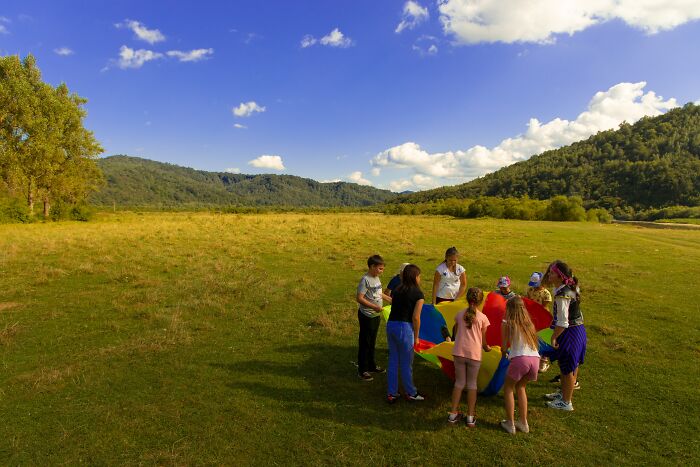 Summer camp, or basically any school trips that had to be paid for.
At my school the kids who couldn't afford to go on trips that happened during school hours still had to come to the school, we just sat in a room and did *extra work* like it was detention.
Summer camp, or basically any school trips that had to be paid for.
At my school the kids who couldn't afford to go on trips that happened during school hours still had to come to the school, we just sat in a room and did *extra work* like it was detention.
It didn't feel like detention to me. It was always the mean kids in the class that got to go on those long and/or expensive field trips, so I wouldn't have been having a good time if I went. Being at school with just a few other kids that weren't that much of a threat or were my friends was extra nice, like a vacation from social agony.
I agree BadCat. I was sad to miss out but I didn't mind school on those days. It was so relaxed and the teachers were especially nice because they understood.
Load More Replies...There were a few low income families in my school. I wasn't particular friends with them (due to classroom and age differences), but when we did scho fundraising my mom would help me fundraise to make enough money to cover the costs of multiple students. My mom was the absolute best.
My husband and I just had a discussion about this....he made a comment "didn't you learn that in summer camp?" and I had to remind him that he grew up wealthy and I was raised by a single mom and never went to summer camp because that was a huge luxury. That landed pretty hard on him.
Or to scared to even ask your parents for money to go on a school trip...
I had to do this. Now they let kids go ahead and go and pay for them. I try to come up with enough money to do that stuff sometimes I have it and sometimes I don't. But I think now they help out or at least they do at my kids school sometimes I don't know about all the time. I am assuming so but idk.
My sons’ school arranged fun days for the kids that couldn’t afford to go on expensive trips, like taking them to town for pizza, so they didn’t feel like they were being punished for not having enough money.
Middle school end of year trip was a train trip to Montreal, 2 days then train back. My dad's full-time job was a railway engineer. This was 1977. The trip was maybe 150 bucks a in, super cheap. My mom said she wouldn't shell out for a train trip, if I wanted a train ride, I could go to work with my dad...
I didn't mind so much not going on school camp. We were put into Maths class and I was in my element, I would have happily stayed in that classroom for the entire year. The maths teacher thought I was just too crazy, I just love mathematics.
After physiological needs are met, we can begin to focus on security and safety. People deserve to experience “order, predictability and control in their lives”. This allows us to relax and avoid feeling constant stress. Safety needs are less about physical issues and more about emotional security, financial security, law and order, freedom from fear, social stability, health and wellbeing. Again, money can take care of many of these issues, providing us health insurance, financial stability and freedom from the fear that unexpected issues will plunge us into debt.
After our safety needs are met, we can start to think about love and belonging needs. These include social needs like acceptance, receiving and giving affection, intimacy, trust and love. At this point, money can no longer explicitly purchase any of these needs. But think about it this way: when you have enough money to enjoy free time and go out to social events, it’s much easier to make friends and build relationships. When we’re constantly working and trying to squeeze in rest, there is not much time for (or much time to even think about) satisfying social needs.
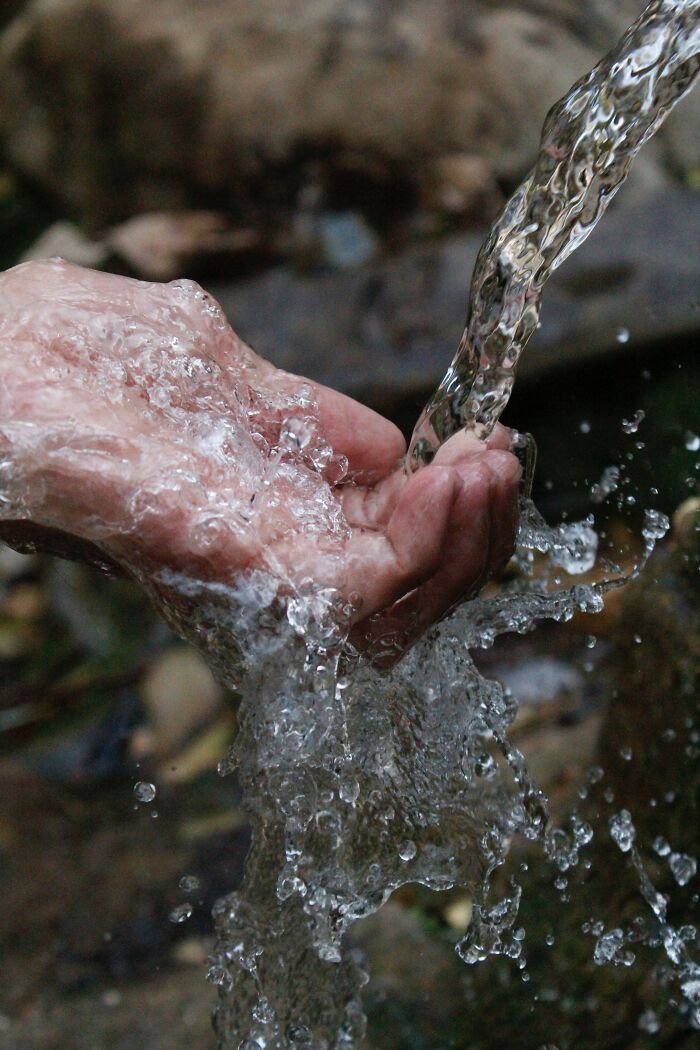 Drinking clean (and enough) water and just having a decent meal, not just a piece of dry bread and tea!
Yes, I come from Yemen, where we did not have a sufficient amount of water (for drinking or cleaning) and did not necessarily have three meals a day.
I remember that we would not have random plants in our garden to water, that would be a waste of water. If you watch Dune, we kinda had (and still have) a similar situation!
Drinking clean (and enough) water and just having a decent meal, not just a piece of dry bread and tea!
Yes, I come from Yemen, where we did not have a sufficient amount of water (for drinking or cleaning) and did not necessarily have three meals a day.
I remember that we would not have random plants in our garden to water, that would be a waste of water. If you watch Dune, we kinda had (and still have) a similar situation!
this is so important for everybody to know. Clear water is the most precious thing to have access to, Millions of people do not have.
Agreed. Right now, where l love, we are in the middle of a severe drought. It's been like this for a decade & the state has issued a mandate. Restricting the amount of water we use. Like the old adage goes, "don't know what ya got till it's gone".
Load More Replies...Okay this one is sad. I'm so sorry it was like that. I hope things are better now.
I'm fae Scotland which has such an abundance of water(it falls from the sky almost every day) but after a problem with a burst water pipe when I was a kid that left my street with no water for a week I came to the realisation of just how important water is, but sadly I'm surrounded by people that will turn on taps and let them run for ages without a care in the world to how much water is being wasted. They come away with stupid reasons like they let it run so the water will be at its coldest, and even though I pointed out they could fill a bottle and store it in the fridge they just continue to waste it.
The amount of times we had Bread and Grave and One Sausage cut into tiny pieces, one potato cut into tiny pieces. That was a meal.
I grew up in the middle of the country and around farms, and we had well water. the farms pesticide run off contaminated our water and seriously f****d up my development as a child. my baby teeth were all rotten before they even came out of my gums, and of course we never had money for dental care either, so I'm missing a lot of my adult teeth too and life is a nightmare.
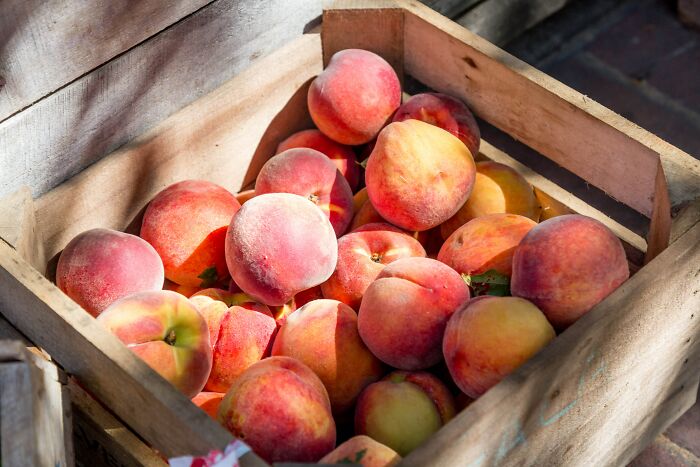 At the end of the season, sometimes the grocery store would have peck baskets of peaches on sale for a dime to clear them out before they went bad. And if Mom had a spare dime, she'd buy them and tell us to eat all we wanted - normally fruit was limited to one a day if there was any at all. Man, we'd hit those peaches like a plague of locusts.
At the end of the season, sometimes the grocery store would have peck baskets of peaches on sale for a dime to clear them out before they went bad. And if Mom had a spare dime, she'd buy them and tell us to eat all we wanted - normally fruit was limited to one a day if there was any at all. Man, we'd hit those peaches like a plague of locusts.
Mom would buy bushels of peaches, sweet cherries, and pears that were grown locally. She would can them for winter use, but we could eat almost all we wanted. She kept us in line because she did not want us getting the runs from eating all of the fruit. What did not get canned as fruit got canned as jelly or peach butter. Mom would save the foam off of the jelly batches and make rolls so we could have the fresh jelly foam on rolls straight from the oven. That was heaven!
I grew up next to a major local orchard that had apples, peaches, raspberries, blueberries & what I think might have been nectarines. After the sun went down we used to jump the fence and get what we could in the summer & fall. When I was 14 I started working there in the packaging facility
Load More Replies...My mom went to local fruit and vegetable producers to ask if she could pick some fallen apples from the ground and left over cabbages/ carrots. So we had a big box of apples to eat. They were often rotten. She cut the bad part out. And we ate cabbage of carrots two weeks in a row. Oh, and brown beans: she had this big bag of these. We ate them 3 times a week, with nothing on the side. Just beans. Took me a while to appreciate them again.
Our family would go glean strawberries in the fields before they were disked under. I remember the heaven of eating strawberries until I was full; I could eat as long as I was still picking enough to fill my box. Then we would make tons of jam. At least one night we would get to have shortcake, too. Yum.
I always thought my Dad and step mom were rich because they had a bowl of fruit and soft toilet paper. We had fruit around payday and when it was gone it was gone.
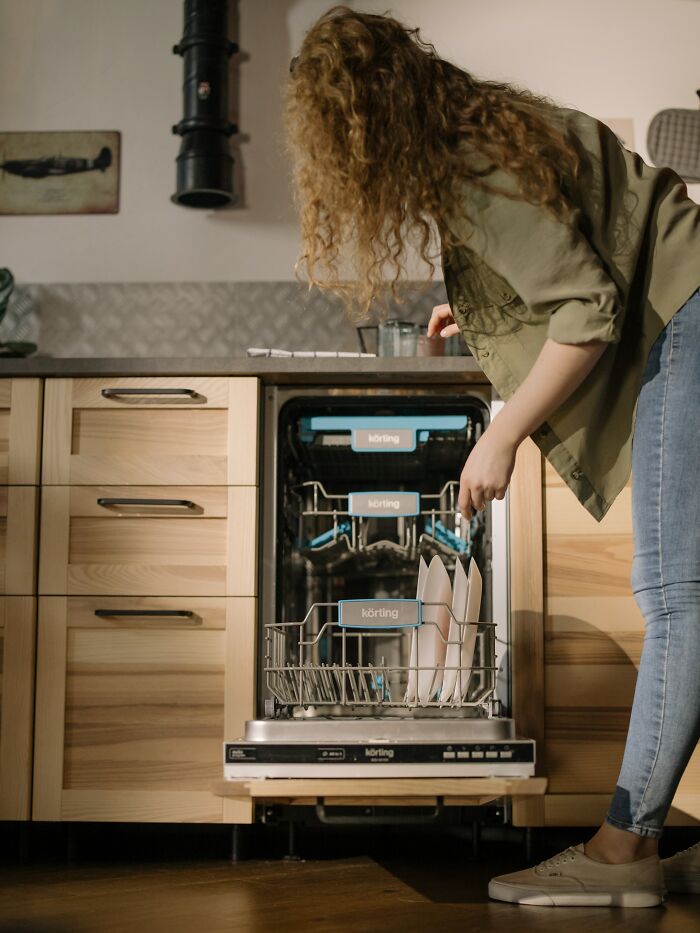 Grew up poor and when I was a kid I used to think you were rich if you had a dishwasher and a millionaire if you had one of those refrigerators that have a button for ice
McDonalds was also a luxury, a couple times a year on our birthdays
Grew up poor and when I was a kid I used to think you were rich if you had a dishwasher and a millionaire if you had one of those refrigerators that have a button for ice
McDonalds was also a luxury, a couple times a year on our birthdays
I still do my dishes by hand so lol. And I make ice with an ice tray. I guess after decades of living that way, I just can't be bothered with these "luxuries".
I am STILL reveling in the luxury of a freezer that makes ice! I can have ice ANY TIME I WANT IT!
Boy, do I understand. We were the dishwasher, no one used ice because we didn't make any and we used a wringer washer even though we could afford an automatic washer. After the first 5 kids left home and Mom only had 2 left, she bought all of those cool work-saving devices.
I'm 40yo, I still have never had a dishwasher or a fridge that makes ice. I've considered those to be luxuries pretty much my entire life. I do okay and my rent and bills are always paid. But honestly my true dream, is to be able to afford health insurance.
That shouldn’t have to be a dream, it’s a right in most of the developed world.
Load More Replies...The well water on our farm was rusty, so the dishwasher and icemaker probably wouldn't have worked well, even if we could afford it. Cable TV (not available in the country) and air conditioning were also things we didn't have.
Family of six here, we cook the majority of our meals at home and the sheer quantity of dirty dishes we produce is mind boggling. We have an extremely energy efficient dishwasher, we've done the calculations and we most definitely save water using that over washing all those dishes by hand. And in drought stricken California, every drop counts.
One of the saddest things I've ever heard. My parents' church sent a group to help with HUD housing for six months. When they came back, one told us of a little boy on his birthday. The boy's mom told him to invite seven of his friends, and she would buy them A McDonald's hamburger. One-eighth of a McDonald's hamburger. The kid was thrilled to death.
The fourth level of needs are esteem needs, including self-worth, accomplishment and respect. Maslow broke these down into two categories: esteem for oneself and the “desire for reputation or respect from others”. The latter, Maslow noted, is particularly important for children and adolescents. Again, these cannot be bought at a specific price, but keep in mind how respected people with money often are. It is seen as a great status symbol to have a significant source of income, and a certain level of respect can be built right into someone’s job title, if they are a surgeon or a CEO for example.
Lastly, we can’t forget self-actualization needs. These refer to the realization of a person’s potential, self-fulfillment, seeking personal growth and peak experiences. While pursuing these needs looks different from person to person, wealth can again be a contributing factor. If someone has an artistic passion, like painting or making music, money can buy unlimited resources to hone skills and hire proper instructors. If it’s therapy that will help someone feel fulfilled, that can be purchased too. While money cannot directly solve most of the needs on Maslow’s hierarchy, it certainly can make pursuing those needs easier.
Fast food. New shoes. If we ever ate meat. One of my brothers didn't recognize a pork chop at age 6-7. Asked my mom, 'Is this hard meat or easy meat?' He's 50 now and we still laugh about it. Syrup instead of a few canned peach slices and some peach juice on our stack of pancakes. Biggest treat? BEAN BURRITO NIGHT We got instant refried beans as a food commodity. Mom grew lettuce and tomato pot back. We would shred the government cheese. The treat was a pint of sour cream, and a jar of salsa. We would each take our turn at the table telling mom what we wanted on our burritos. (One brother only ate peanut butter and cheese burritos, and yes he did survive into adulthood). Mom is almost 80 now, but as long as us kids cut up so the ingredients and pull up a chair for her she will still roll you a 'big fatty - her words. Cue mom getting wistful and reminding us, 'I was quite the roller in my day.' The 80's were good to her lolol
I was raised by parents who lived through some very tough times in the first half of the 20th century. Except for buying animal products and bulk veggies, my mom could make anything and taught us to do the same. She had an enormous garden that we helped with and learned from. She taught us to cook and sew. They both taught us to mend things and keep them up or do without. I am grateful that they passed those skills on.
Government cheese was the best! I’d pay 20 bucks for a brick of it right now. So much better than velvita!
Yes!!! Why did it taste so much better than anything you could buy?!? I would definitely slip my dude a 20 for a brick right now! 😂 But frfr
Load More Replies...The absolute best for making grilled cheese!!
Load More Replies...We ate fast food from Jack in the Box for a little while because my mom got a job "reviewing" their new meals-in-a-box. God, that was fancy! But yeah, fast food -- a bucket of chicken from KFC -- was for fancy family get togethers or a picnic. You didn't just... go get fast food when there is "plenty of food at home." (Anyone who's seen the old Eddie Murphy bit about Mom refusing to take him for fast food and insisting she'd make him a burger that's "better than McDonald's" knows.)
Green pepper burger and the wonder bread mixing with the ketchup to make pink dough!
Load More Replies...I didn’t have store meat until I had dinner at a friends house at age 16. I thought something was wrong with the meat. It was beef. Until then I had only had rabbit/ venison. We all got a good laugh!
Venison and rabbit are both awesome though! I'm in a mountain region where deer are over-running the place. In November, I bagged a nice one. And have a good amount of meat.(which I'm thankful for.) I'm not too much on the steaks but the sausage, tenderloins, chops and ground venison (for chili, etc) is the bomb!
Load More Replies...I remember the government cheese...we also got oatmeal and peanut butter, and I ate pounds of puffed wheat cereal because it was extremely cheap.
moms are great at this kind of stuff. my dad wouldn't pay child support but ever so often would bring over a case of something. sometimes tuna, veggies, and one time campbell's chicken noodle soup - that was when campbells was cheap. yes, we did have soup & toast for dinner a few times but mom was great at draining the noodles, making a gravy w/spices & veggies and topping off the few noodles that came in the cans.
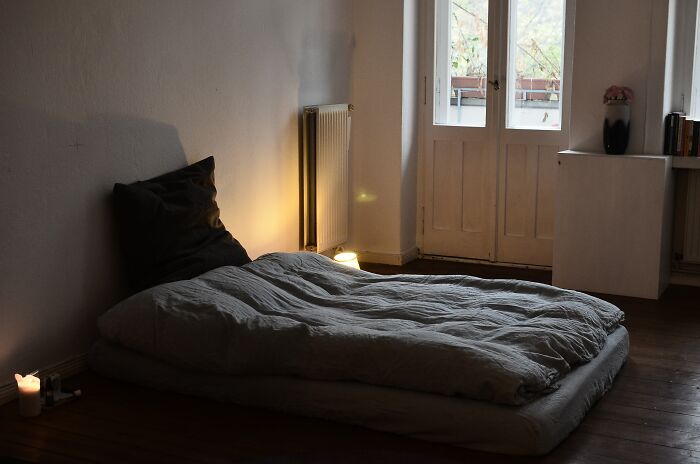 Actual beds.
Not just mattresses on the floor.
Actual beds.
Not just mattresses on the floor.
I still have mattress on the floor. That stuff is very expensive we did have a bed but had to leave it behind when we moved. But I have not been able to afford one. Not shore if I'm ever gonna get one. There nice and all but I don't know
Trisha...if you are in the US...my best friends daughter just found a bed, mattress and rails on Craig's List of our city for her first apartment...all for $45. A couple of empty nesters were downsizing and needed to get rid of three rooms of bedroom furniture...they were letting things go for DIRT cheap. Perhaps you may find something there? They also have a section for "free" items and you may be able to find one there....I wish you were in my area...I have one I could give you as well.
Load More Replies...I spent one of first years as a young adult sleeping on a sleeping bag on a cheaply carpeted floor, which had no padding and was over concrete. Then a friend gave me her old twin bed, and I slept like a baby floating on clouds for the week after that.
I had a mattress on floor for years, finally buying a bed frame and headboard felt indecently decadent! St vincent de Paul will give you a mattress/bed for free if low income or you can buy one there for like 30$. Also Craigslist often has people needing to get rid of beds. I posted on craigslist for free/cheap furniture after leaving an abusive relationship and a lot of people answered. I received a tv, end tables, a sleeper sofa, a recliner and a small dining table.
I still have no problem with that. If your mattress is on the floor you don't need a box spring. But, these days my knees wouldn't let me get up off the floor.
I had a pallet or the couch. I was 16 when I finally got a bed of my own. Lol the pallet years, wow. Have not thought of that in a long while.
When I got my first job I bought a bed from a catalogue. My dad was so angry. "Is the bed I provided for you not good enough?" No, the 1955 bed you inherited, with original mattress is crippling my back. It was good enough for him to use whenever his back hurt, so I moved up to the attic which was impossible for him to get into with a bad back. I even offered to use my rent money to buy him a new bed or mattress, said no.
I would say tranquility and security. My parents had little money, same as I do now, and now I understand the huge work they did every day for me to feel safe and serene. Lacking money is s**t nowadays, having to check if that payment will come in on schedule or you'll be left with debts that month is the greatest s**t I can think of right now. This happened to my parents, too, but they always made it so it had no impact on our daily lives for me. It was just an act, of curse, but I will always appreciate the few years of serenity they gifted me with.
Awww this is the most positive thing I've read in a while. Far too many people associate poverty with bad parenting, but it's just not so! My parents were amazing, and my mom is a damn superhero. The fact that she raised 3 biological children and got stuck fostering multiple nephews & a BIL with NO HELP from anyone except my father is short of miraculous. She was a teen mom, so things were just difficult. Now I'm 39 and I take care of HER. She deserves nothing less.
our lack of money was due to dad spending all of his and mum's earnings on things he wanted and not budgeting for family necessities. Now he has died, mum is still wanting her money back from all the books, stamps and fancy bookcases that are now worth little or nothing. We ate the child benefit cheque and were clothed by charity shops. Dad worked full time, mum worked full time, part time and as full on house spouse. She was naïve enough to have a shared bank account and trust that her husband would look after his family.
Load More Replies...I know a lot of people who make a lot of money, and they're STILL constantly stressed out about money because they live beyond their means. Growing up with less can be a blessing, because you learn how to prioritize your wants and needs, and how to make do with what you have.
We used to get c**p and dirty looks for using Food Stamps back in the seventies.
Yup. I swore I would never be on Welfare when I grew up. Then life happened, and to take care of my daughter when my job closed its doors, I went on Welfare for a year. Then I got a job and went back to school... and then life happened again. Finally reluctantly went on EBT, after friends who had never been on it convinced me that I had put money into the system, so I had earned the right to accept that help, and other people *still* look down on us. I have two autistic sons now, and we get by on ~$800/month from one's Social Security. We couldn't manage without the EBT.
Load More Replies...The funny thing is that the ppl that pay you can pay you mostly whenever, but the ppl you need to pay (I am looking at you banks), will not give you ANY leeway, but you know why, this is because the ppl who pay you are the rich and they don't give any f s and the ppl who you need to pay are the rich, which in that perspective becomes the most important thing in the world.
I realize now after she is gone the tremendous job of making our lives seem normal, as a single mother.
When my dad retired from the marine corps, we moved to Fl. To be next to his older brother and their family. We lived with them for a while when we first got here. It was not ideal. But it was fun fir us kids. Strangely enough, the whole idea was to be close to family. We never saw much of them by the time his brother died and my parents died. But my parents, mainly my mom made life fun for us. We loved books and our favorite thing was to go to the used book store The Book Worm , where we lived and pick out a fe books to read, and trade in the ones wed already read! We eventually had book credit and that was always fun! Wed go and spend at least an hour in there as we all(4girls!) picked out books to read. Even mom! It was a huge highlight of the month for us! That was the early 70’s. Even now, my sisters and I are great readers and share books when we meet up. We neger knew things were very tight. We had sisters, a home, parents and lots of love.
In the 1970s, my folks could live on one income and still pay for a house (when houses were only 3 times one's annual salary). Now, being a widow and houses unreachable, I guess I have to be content renting at twice the price of a mortgage because banks don't like single moms nor do employers with decent salaries to offer. Apart from the gun insanity, affordable housing is the worst problem the US has.
After a few years of unemployment (lay-offs), husband found teaching job that had 10 paydays per year. That supplied enough $$$ to cover our bills, but sort of "just after the nick of time" so, typically, we'd have utilities shut off for a few days and then (on payday) we'd go pay the bill plus the penalty for late payment plus the reconnect fee. When our lights were shut off, our 6-year-old asked "Are we poor?" Her 8-year-old brother answered her question saying "We are not poor. We are broke. We are lucky. When Dad gets his check, we can pay our bills, and buy food. Poor people don't get checks."
I only realised we were poor when in my teens a 'friend' said what a dump our house was.
While happiness may be too much for us to ask of money, our finances are tied to our mental well-being, according to Purdue University. In fact, a 2020 survey found that 73% of Americans rank finances as the number one stressor in their lives. This stress can manifest in physical symptoms as well, including anxiety, headaches, compromised immune systems, digestive issues, high blood pressure, muscle tension, depression and more. “Health issues then present increased medical expenses, which worsen already tight money situations,” Amanda Hathcock, an employee assistance counselor at the Center for Healthy Living, told Purdue. “It’s important for individuals to have support to help them process this cycle of overlapping stressors so they can hopefully slow the cycle and head in a new direction that leads to some relief.”
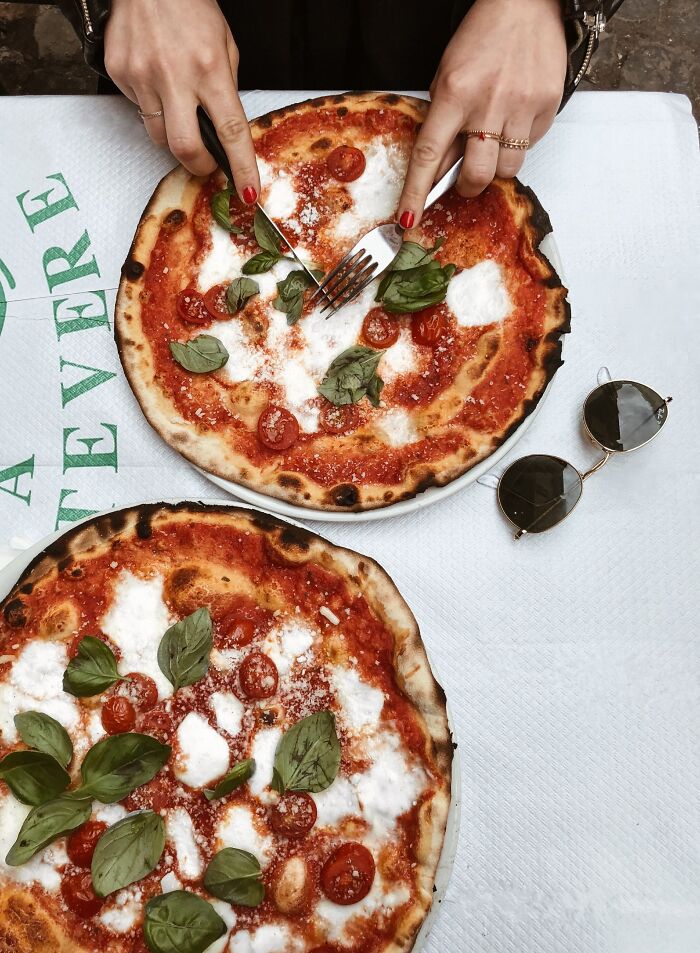 Going out for pizza was a big deal. Those free mini pizzas for reading books were huge.
Going out for pizza was a big deal. Those free mini pizzas for reading books were huge.
Could you explain that, please? I guess it's a US thing.
Load More Replies...Yes!!! I found my love of reading through my love of free pizza coupons as a kid. Thank you Pizza Hut!!!!
My kid loves these free pizza coupons from reading! She couldn't believe it when I told her I got these as a kid too lol.
The one time I convinced the folks to let me use my book-it voucher we waited 30 mins for a clerk to say that "someone ate it." Folks had finished at the other food court restaurant so waiting for another wasn't happening. No one seemed to understand why I was so upset I just sorta closed off for a couple days
Book It was the best! I didn't read much but Happy Birthday Moon got me free pizza until I was like 14
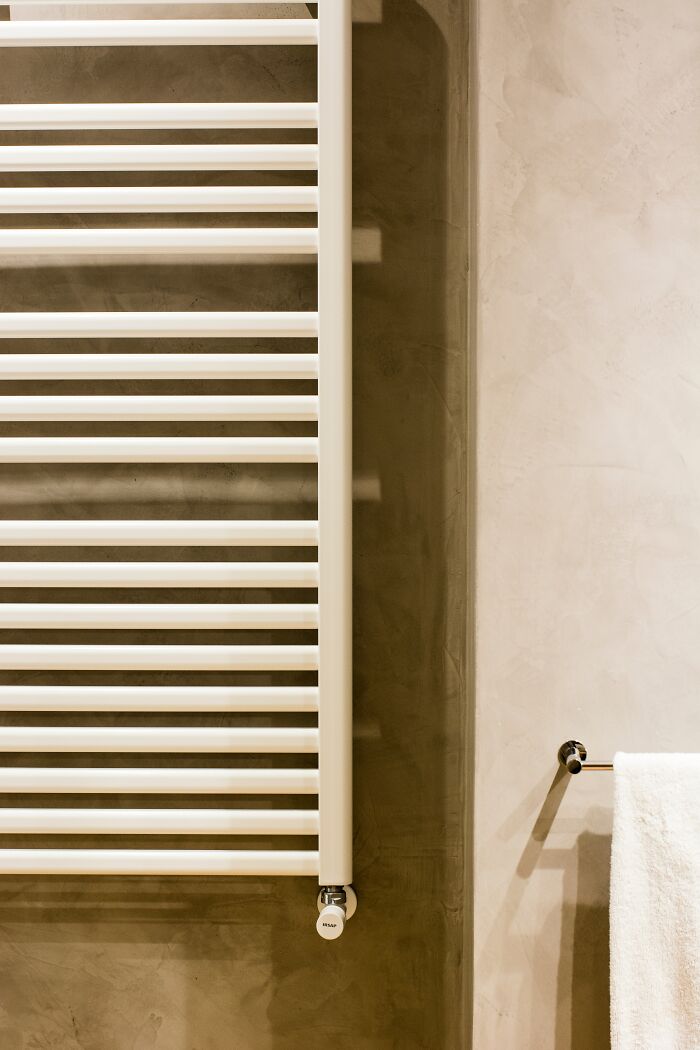 Having the heating on. We used to go to bed in our sleeping bags in winter which was really cool back then, pretty depressing now
Having the heating on. We used to go to bed in our sleeping bags in winter which was really cool back then, pretty depressing now
This will become a reality for a lot of families in The Netherlands. Yes, we are one of the richest countries in the world. But the current war in Ukraine has put gas prices through the roof, sometimes as much as 300%. And a whole lot of families simply won't be able to afford their gas bill.
Not just there unfortunately. All the bills have increased hugely. Even with zero usage!
Load More Replies...I think this comment is really important. Sometimes it's okay for kids, especially if the adults have the bandwidth to make things sort of fun. Kids need caring adults and positive experiences more than they need many of the things we consider necessities. Obviously, food, clothing, etc are needed and poverty makes it hard for parents to provide responsive caregiving. Kids can thrive in many situations!
We might have to do this again in America if we have another blizzard storm like the one in Texas and the surrounding states.
I am so thankful for the energy help programs. They make all of the difference in the world. In our case, no heat means frozen pipes.
Energy help programs? I'm disabled & widowed & can't get that
Load More Replies...We had no heat in the upstairs of the old log cabin I grew up in. In the winter my mom would heat a cast iron skillet on the wood stove and run it beneath my bed sheets, then I'd jump in bed under a pile of quilts and mom would tuck me in real good. The weight of all the quits felt good in the nice warmed bed.
Hmm. I’m wondering if I can afford heating fuel this year… Good thing it’s a wood/oil furnace - I’ll just have to haul more wood inside.
For my biology class (10th grade) I had to grow fruit flies at home. We had no heat, so they were not going to hatch. I snuck them into my boss's office where it was very warm and had some success. At least I wasn't going to fail.In the winter we (4 kids and mom) slept in the kitchen with the electric oven on.
Went for several years in Ohio with no central heating. Had to close off our bedrooms and sleep in the living room. There was two bathrooms on either end of the trailer and one always froze over because of the no heat.
My mom used to turn the oil heat off at night because oil was expensive. In the morning inside the windows would have ice on them. Whoever got up first had to light the oil stove. I was always up first, that was such a scary chore. I’d throw the match in and slam the little door shut, when it caught it made a huge explosive sound!
 Buying any kind of fruit I want at the grocery store.
Buying any kind of fruit I want at the grocery store.
Buying fresh produce, period. I didn't eat fresh veg until I was in my 20s, other than if we went out and got a salad. Sure, there were carrots or apples, but generally, having a supply of fruit and veg meant we had cans of peaches and peas from CostCo. People have no idea how expensive it is to eat even ONE fresh meal.
And then people who can afford it tell you it's not that expensive. Haha. Live on 800 dollars a month with a family of 3 to 5 people then tell me it's not that expensive.
Load More Replies...It boggles my mind how junk food with empty calories can be so cheap, but fresh fruits & veg so expensive that the poor can't afford them.
Because... eating healthy lengthens life and the government can't tolerate that!!
Load More Replies...Yes. This. Man, people have vastly differing lives... Most poor. But, their attitudes to rise above, and preserver is the most atonishing.
I remember eating cherries once as a kid. My brother and I were small and I don't remember the circumstances, but we got cherries once day and ate the whole bag in one sitting. We got so sick. I still look at cherries as a luxury
My daughter has a diet rich with fruits, vegetables & lean meats. The first thing my husband & I talked about was our future children's nutrition. It's maybe a little too important to me.
I always plan a monthly trip to a grocery store with fresh produce. The closest one is 50 miles, one way. But oh, fresh everything for about 10 days of the month. Longer for root veggies, garlic, and onions.
Harvard Business School has a piece on their blog addressing how money can not only buy us things, but it can also help us avoid things, like stress. It can make it much easier to solve everyday hassles, like what to eat for dinner or how to get to a party. There’s no hesitation to call an Uber or order takeout when you’re not living paycheck to paycheck. Don’t worry about waking up early to pack a sandwich to take to work with you if you can afford to buy a $12 salad at the cafe near your office. “If we only focus on the happiness that money can bring, I think we are missing something,” says Jon Jachimowicz, an assistant professor of business administration at Harvard Business School. “We also need to think about all of the worries that it can free us from.”
 Going to someone's house when they had a sectional sofa. The pinnacle of luxury.
Going to someone's house when they had a sectional sofa. The pinnacle of luxury.
I never had a new sofa my entire life until a year ago, I was 37! Always hand downs. Seventies couches - crazy bown & orange flowered ones- were a norm until early 2000s
Go on Craigslist and people GIVE AWAY nice couches. Of course the kicker is you have to come and get it, and have a truck to haul it.
Load More Replies...It was Cable TV and a VCR or Video game back in the 70's. Those were the really rich people growing up.
When VCRs first came out, you could rent one, along with the tapes. I remember us doing that, until VCRs became cheap enough where we could afford to buy one.
Load More Replies...I remember when wall-to-wall carpeting was a luxury thing rich people had. Now it is what they put in the cheapest grade homes!
I heard the same thing from my mom but it was about how big the TV in the home.
The concept of going to a restaurant and deciding on food you actually wanted, not just the cheapest thing on the menu, was wild and a hard lesson I still grapple with. Restaurants were special but my family did this odd thing where when we were expecting things to be extra tight for awhile we would go to a (cheap) restaurant as a kind of final hurrah before things got really bad for awhile. So I associated restaurants with sad/hard times coming, and would always order the cheapest thing to help save money. This extended to even a friend's family taking me out. Even now my partner asks me if the thing on the menu I chose was what I actually want or just the cheapest thing. They didn't grow up poor so they were very confused by some of my "odd" behaviors.
My boyfriend in high school was spoiled and his mom had just married into some money, and he could not grasp this. Every single day, he'd want to go to a fast food place for an after-school snack. He didn't understand that I couldn't and wouldn't order anything, and was annoyed that he'd order and eat in front of me all the time. Then he'd whine that he "had to" pay for it because my not eating "ruined it" for him. If I said "I can't afford it," he'd fight me about it. Why couldn't I just get some money from my mom? It was only five bucks, what was the big deal? Dude could NOT fathom that when I had five bucks for the week, and my school lunch was two granola bars for one dollar a day, no, I couldn't go order a twenty piece McNuggets and a Super Size combo as an after school snack. (Then when he decided I'd gained too much weight, he wanted me to "just order a salad, then!" because that was reasonable AND cost-effective.) Even now, I can't stomach McDonald's after his b.s.
My family only ate at restaurants on special occasions. Usually an older relative - like a grandparent - offered to pay. But it was understood that when someone else was paying, it was polite to pick one of the cheapest things on the menu. When I grew up and would go out with friends and we were splitting the bill evenly, I was horrified by the people who ran up the bill with appetizers and cocktails and steak and crab legs. That was just the epitome of rudeness in my mind.
Yes this. We always had to eat cheap. When I friends parents would take us out I would ask what I was allowed to order and asking g what my price limit was. They would always give me a funny look and say just order whatever you want. It confused me. Then I would choose something and then ask if it was okay if I ordered what I chose. Again I would get a funny look and they would say of course. I guess they didn't understand I was poor. And when we went out we had a price limit of what we could order.
I can relate! My folks would take us out 2-3 times per year. They would tell us before we went in what we could order. Once in a blue moon, we got to order the mid-range meals. That was alright!
I’m still like that. When I go, I ask myself if I’ll finish it, and is it worth the money? If not, I get something cheaper or a smaller portion because I always feel bad if there’s a chance of wasting it because not everyone can afford it.
I'm still a "dollar menu or nothing" person. The first 10 years of my marriage I used to pretend to not be hungry when we went out just out of habit. My brain made an association as a child and I still struggle with it.
Load More Replies...Neither I, nor my siblings can order in under 45 minutes. We’re so worried about committing to an item, like it’s our last supper, that we agonize over things like “the Cesar salad has croutons, so that’s bread (filling), but the Southwest salad has beans & corn… but how much of each, & is a salad with several types of lettuce more nutritious than just romaine?” The first time I ever went out to eat with my family was when my fiancé’s parents met mine.
I still do this sometimes. Sometimes we can all get what we want. Sometimes we don't get to go out an eat. I have a family of 5 if where our it gonna be a pretty Pennie.
Dental and medical care. Dental insurance was a huge luxury. I didn't have an employer that offered that until I was in my late 20's. Needless to say, I spent a fortune on my teeth. I made sure my kids always had dental care from them on.
I still can only afford community dental, meaning you are on a low income health care card and only have to pay $30 per appointment, but the waiting list is massive.
When I lived in the northern US, I was able to get community dentistry, with a sliding scale. Living in the south now, you have to be much more poor to be eligible for any assistance of any kind.The so-called Family Values states refuse to actually spend any money to help families, unlike the northern and West coast states. I am stuck here a few more years for caregiving reasons, but I am counting the days until I can get back to a decent part of the country. And yes, there are decent parts of the US!
Load More Replies...I need 30k worth of work. Our dental costs 500 a year and only covers 1500 max, with very little actually qualifying. My daughter needs braces right now and it's gong to run us quite a bit
Load More Replies...Three month's worth of the last medication prescribed to me for my rheumatoid arthritis is 24,000$. Not a typo: it's about 7,500 a month, and that's WITH insurance. I've been struggling to find a treatment that I can afford; I can't work, I can barely take care of myself and my two kids. My husband works hard to support us all, but we're drowning. American Healthcare is the absolute worst.
You may have already tried this, but check the medication maker's website or call them. Many times they offer a discount card for their expensive meds that you can sign up for. I had a med with a $300 copay drop to $50. Also, if you haven't already, you should apply for SSI. SSD can be difficult to get (Social Security tends to deny every initial SSD application because they're AH, but SSI can be easier and quicker to get-you have to supply proof of income each month so maybe that's why). I know children who get SSI also get medicaid (automatically in most states), maybe adults do as well. If you do get SSI, your kids may be able to get an SSI benefit as well due to having a parent who cannot work and financially support them. (I work in a school so my only exp is with kids getting SSI)
Load More Replies...I'm Canadian so much of our Healthcare is covered...but dental is not. My husband is battling Stage 3 colon cancer and after miraculously getting pregnant after a decade of infertility, we welcomed a baby girl in 2020 who sadly was born with a critical/fatal congenital heart defect. She's had 3 heart surgeries so far that have saved her life...but her cardiology team is a 17-18 hour drive from our home. We're often there for weeks at a time for each of her surgeries. All of the expenses have added up a lot....and then losing Mt husband's income has left us struggling a lot. I've had to rely on food banks and the kindness of friends, family, and complete strangers in our community. I've been trying to apply for disability benefits as I'm a chronic pain patient with autoimmune issues and severe spinal issues (multiple surgeries) and haven't been able to work very much in years. At 37 years old, I desperately need my teeth removed and to get dentures....but can't afford it. :-(
My husband and my baby girl come first. ♡ I've taken on any kind of work that I CAN do right now, just to support us. My husband had a bad reaction to chemotherapy last week (we're told it happens to 1 in 1000 patients) and suffered a heart attack. I am terrified of losing either one of them. I am headed back to the Children's Hospital with our daughter in June for a check-up and to see if we can put it off longer or if it's time for her next heart surgery. :-( (we want to wait as long as possible to just let her be a normal kid for awhile) Dental care really SHOULD be more affordable/accessible and included in places like Canada with medical care coverage. I'm in so much pain and even though it scares me and saddens me to think about getting dentures...I just want the pain to stop. :-(
Load More Replies...My mom, sister and I once got our teeth cleaned at the local university's dental college. It wasn't the best but the students need people to practice on and I expect they didn't get many young children to practice on. I think my sister was 6 and I was 8 at the time.
I still have this problem I can not afford to have that taken out of my check. I just have to wait until it emergency and go pay for it or wait until tax time.
I know that feeling, sadly in the UK there's a severely small amount of Dentists taking on NHS patients which meant I couldn't get treatment when I needed it which sadly when I finally found a dentist that would take me I had to lose about twelve teeth(thankfully not all at once).
I call it "the spa for my teeth" when I go to the dentist now. I went maybe a half-dozen times as a child, and then couldn't afford it until I was in my 30s. See also, going to the doctor when you're sick or something is wrong.
In terms of solving the issue of wealth inequality in the United States, Jachimowicz acknowledges that there’s a long road ahead of us requiring systemic change. There’s an unfair stigma around being poor, and affluent people often have no idea how privileged they are, especially if they inherited wealth. “We have normalized this idea that when you are poor, it’s your fault and so you should be ashamed of it,” Jachimowicz notes. “At the same time, we’ve structured society in a way that makes it really hard on people who are poor.” He points out how difficult everyday tasks can be for those living in poverty, from relying on inaccessible and expensive public transit to being unable to afford daycare for their children so they can work. “People who are poor should feel like they have some control over their lives, too. Why is that a luxury we only afford to rich people?” Jachimowicz says. “We have to structure organizations and institutions to empower everyone.”
When I was broke I would take walks alot, usually at Daytona beach. I'd sometimes walk past some really nice looking restaurants and wish that were me sitting there eating delicious food. 16 years later now I do.
I bet the people who could always eat in the restaurants don't appreciate it like you do.
If you have not experienced less how can one appreciated and enjoy having more? The wealthy do miss out poor dears.
Load More Replies...When the pandemic started, the news media (at least in the U.S.) reported obsessively about the impact on bars and restaurants. I just couldn't relate to THAT being the big tragedy regarding covid. When I was a kid, we were more middle class than poor. But we still only went to Mc Donalds once every couple of months, and to a mid-priced family chain restaurant once or twice a year if there was an extra special occasion. Restaurants just didn't play a big role in our lives. As an adult, I eat at restaurants - and nicer restaurants - more often. But I still think of it as more of a luxury that demands an occasion.
Going to a friend's house and seeing they had stairs. An upstairs bedroom? A downstairs basement area? I thought my friends were millionaires.
My God I thought that was just me! I was MESMERISED by an upstairs/downstairs. Magical! All my friends seemed to have them. Our flat was literally that.
Me too! Glad to see it wasnt just a me thing. I was SOOO excited when my mom and I moved into a two story townhouse rental when I was 14. May also be why, outside of my post-college apartment, every home I have lived in as an adult has had two floors...still weirdly fascinated by them... lol
Load More Replies...I remember going to friends’ houses and if they had Pringle’s chips I thought they were rich. We rarely had chips of any kind.
We had a very old house. I was amazed at the newer homes most of my friends had. Laundry chutes and laundry rooms were what entranced me.
A lot of people buy single story homes because they want to grow old there and not deal with stairs. Your folks were planners more likely.
this one is true here in Europe.. average people live in flats, full houses are indeed for the rich
At nine, I visit a school buddy's home. He lived in a 3/2 with a garage and had his own bedroom. Wow! Must have been rich.
 Ice cream once a year on my birthday
Ice cream once a year on my birthday
Ice cream was stopping by Baskin-Robbins on the walk home from school and asking for a taste spoon. Pretty soon the shop stopped giving them out to unaccompanied kids.
Like pop was only for special occasions. We had a wonderful place in Canada called The Pop Shoppe where we were allowed to choose our favourites once in a blue moon. And the bottles were worth money when we returned them.
Ok but the ice cream in that picture looks f*****g amazing.
I feel damn lucky that we had homemade ice cream growing up. The ingredients to make a gallon of ice cream were less than the cost of a pint at that time. And the anticipation of waiting for it made it all the sweeter.
One day while walking through town, mom began crying. I asked her why and she said, "I wanted to buy you kids (bro and me) an Ice cream and I don't have any money". Neither did we. She did so much for so little reward. Thank you mom.
The only ice creams I remember are the ones I got at the school end-of-year picnics.
While being poor has made the people featured on this list more appreciative of the little things in life, it’s unfortunate that these luxuries couldn't be common occurrences in their lives. Being a person is stressful enough without having to worry about where your next meal is coming from or if your children can go on a school field trip. We all deserve so much more than having our basic needs met. We hope you enjoy reading the rest of this eye-opening list; then let us know in the comments what little things you’re grateful for that you’ll never take for granted.
Shoes that didn't come from the $2 aisle at K-Mart...once a year.
This one hits home. I cringed at the price but finally bought a pair of Dansko XP 2.0 clogs for $120. I’ve worn them almost every day for 10 years now.
$2 Grant's Specials were the only sneakers I could get for gym class in grammar school and they had to last the entire year. Wrangler Jeans were worn until they were splitting the seams, then that pair became patch material for future jeans.
I remember getting "gym shoes" at K-Mart and Sears as a kid. I think we often went all out for church shoes though. I think I had some Buster Brown's and Hushpuppies at different times. They had to last and they came off as soon as we got back from church.
I get the kids shoes second hand if possible... They are so expensive and they wear them for what feels like only a few weeks.
I actually prefer cheaper shoes because you're not paying extra because the company hired some bawbag to advertise their product (I currently wear a pair of walking boots that cost me £30, I've been wearing them on and off for the past six years). I remember as a wean when my mother was buying shoes for us my younger and my two older brothers wanted Nike which cost her nearly £100 for three pairs, seeing the cost I asked for a pair of plain black trainers that cost £5 and refused to wear anything but them to stop her wasting money on Nike. The next year my £5 shoes where still in good condition when the Nike ones my brothers got were falling apart meaning my mother had to spend more money to replace them, sadly my brothers didn't care as long as they fit in with the latest fashion.
Quality shoes pay for themselves, as long as you have quit growing. Proper footwear is important if you stand or walk all day. My mom grew up on a farm and her folks bought shoes by tracing the kids' feet. And if you have kids, you know their feet can grow out of 2-3 pairs per year. My Mom's feet almost look like they were bound. Her toes were so jammed into the shoes! I don't care how much I have to scrimp, everyone in the family gets quality (not expensive) shoes when they need them.
This one really hits home for me. Beginning of the school year I would get one pair of shoes for school and one pair for gym class. Never once did I get a brand name sneaker, they always cane from the bargain bin. They were the worst shoes ever and I was so embarrassed to wear them and was teased relentlessly about them. I hated gym class because of it.
My mom had bought a pair of "old lady shoes" and they were too small, so I had to wear them to school. I was so embarrased.
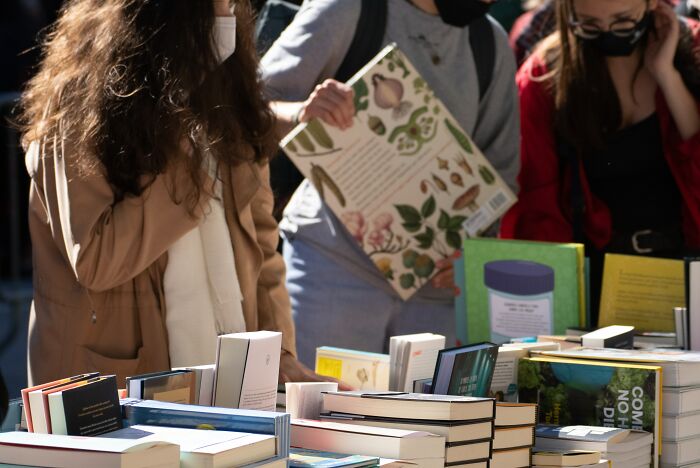 Buying a book instead of borrowing from the library
Buying a book instead of borrowing from the library
Novels, I borrow. Reference books I want my own to have to hand any time.
Load More Replies...Oy! I am a library maniac! But when covid hit and my library was closed...I Do Overcompensated! I bought books for real and on kindle that I have to calm myself when I look at all of the "real" ones Yow!
Not being able to borrow from the library because you have $2.50 in late fees, or because your stepdad got pissed at you reading and threw the library book out the car window, and you can't afford to pay for it. Libraries cancelling late fees is one of the best things they ever did. I wasn't able to access libraries for most of my childhood because of less than five dollars in fees.
It is a luxury to buy any book you want, especially one that will be meaningful and reread. But I read a lot and can buy, but choose to borrow from the library. Libraries are not just for people who can't afford to buy.
Look on Craigslist or in yard sales--- sometimes you can get bags of books for free or extremely cheap! I remember once my BFF took me to a house that advertised $5 per bag of books (yes, pre-COVID). The two ladies who lived there let us look through stacks and stacks of books to pick and choose what we wanted, and we left with five bags of paperbacks between us, with 25+ books per bag, for $25. Worked out to be about 4¢ per book. Still working through those books and swapping them with BFF.
 Christmas decorations. We used to just put tinsel on a fan and that was our tree
Christmas decorations. We used to just put tinsel on a fan and that was our tree
I remember making popcorn garland and making Christmas ornaments out of dough and Styrofoam. We still have them.
We made popcorn garlands too! Everything on our tree was either self made from recycled materials or edible.
Load More Replies...One of my best Christmas memories for a long time was the year my sister and I got to spend it with our mother who was very very poor. She thumbtacked a couple of fabric scraps to the wall in the shape of a tree and very carefully hooked a few of her great grandmas ornaments to it. She took us to dollar tree and let us get two gifts for eachother. Christmas Eve meal was a box of McDonald's nuggets and fry split between us while my mom didn't eat. And Christmas breakfast was toast with syrup like they were pancakes. We thought it was awesome. It took me years to realize that Christmas was devastating to her. Even reaching a point where I realized how sad that Christmas was, it was still my favorite memory until I turned 19 and learned my mom didn't the entirety of Christmas hiding periodically while she broke down and cried
Most of our Christmas was homemade. From decorations to gifts, it was from our hands. Looking back, it was a good thing and a treasured memory.
Our first Christmas together, we had a sad little artificial tabletop tree that we decorated with cut-out paper snowflakes, bits of foil, and paper chain garland. We called it our "Charlie Brown" Christmas tree, and still remember it fondly. Ten years later, we did a Christmas to remember with a themed tree in every room. Everything from the burgundy, cream and gold Victorian 7 ft tree in the living room to a tiny one in the bathroom. That was the only year we had the combination of time, money and energy to pull it off. Now, we're lucky if we get a couple of decorations out in time. But we still cherish our memories of all of our various Christmas trees through the years.
I ve never thought about buying our own tree. I have Christmas cards of the last years in the silhouette of a tree at our wall 'cause for me a tree is not worth the money it costs...
Poor is asking the church for money to be able to pay the heating bill in the dead of the winter. Thermostsat NEVER went above 65 and most likely stayed at 62! We lived in An area where below zero temps were a regular thing.
Going to a fair, a concert, or a similar event, and buying food. Unthinkable when I was a child. Clearly people go to the summer fair just to enjoy the aroma of fried dough.
I was lucky coz even though money was tight, we got to go to a fair every year. My dad used to work for Mitsibishi and every year they would have a Christmas fair for the workers and their families. We would get vouchers for a free ice cream, a free showbag when we visited Santa and a free ride/activity each. So it was a budget friendly family day out.
Watching every one riding the rides and just wishing you could go on one
New clothes. Pretty much had to make everything last and while I'm not proud of it I did alot of shoplifting as young teen. I always look back and think how I really lucked out that the "dirty punk" look was super in when I was a teen. I basically based my whole style around it and people thought I was just being fashionable but I was just really f*****g poor lmao.
Some of the most exciting times when I was a kid/teen were when I got a big bag of hand me down clothes from family friends.
Right?! When one of "the ladies" from Mom's or Grandma's office sent home a couple Hefty bags of stuff! Of course, it was mostly rayon and required dry cleaning, and that was NOT happening when I was a teen, so....
Load More Replies...A meal out in a restaurant (not even a fancy one).
My parents took advantage of the Kids eat free nights and we would just go to the local pub.
Being able to turn on the heat in the cold and pay a professional to fix damaged appliances, plumbing, and other issues
When our AC went out, my grandma would set up the fan, freeze a big block of ice, and then sit in front of the fan holding said block of ice. We'd put our pajamas in the freeze for an hour before bed. It is luxury beyond luxury to not have to "make do" with flushing the toilet for a couple weeks by pouring in buckets of water, or dealing with temps in the 90s by holding a block of ice in front of a fan.
Yes this is a big one growing up we couldn't. When mom got cancer a church offered to help dad fix some of the house and gave us an air conditioner. At no charge. Since I've been older. At tax time we try to fix up our place as much as possible.
Husband's family had a "hassock fan" (round and blew out a lot of air) and they would put a block of ice in front of it. And a swamp cooler but that wasn't always good as we had humid summers. My family had an attic fan which helped because we had a couple of big shade trees.
I buy multiple cheap fleece blankets every year when they go in the discount/closeout aisle, and give them to family at Christmas, including my kids. Now we all have enough blankets to layer and keep warm during winter. I also keep several in the van in case of emergency, because you never know when your car will break down in a deserted area.
We’re usually had a can of soup or beans or a slice of bread and spam for dinner. On payday mom would bring home one of those rotisserie chickens they sold at the grocery store. We were eating like the rich people. Fast food was still like eating at a restaurant to my mom and thus unaffordable.
I ate a lot of meals out of a can growing up. Beans, preserved fish, spam and the like. I still stock them. They lasts a long time and can be a quick meal when you just want to not be hungry.
I don't think I really encountered fresh veg until I was in my 20s. Fresh food is too expensive and goes bad.
Load More Replies...this was years ago. the montgomery wards where we lived actually had a little deli type kiosk in the store. i remember thinking it was so odd to have that in a dept store. so, ever so often mom would stop by there after work and get cold cuts and bread and maybe a little potato salad. little did i know that when she did this it was because it was before payday and she didn't have money so she used her credit card.
Mum would get a meat roast and cook a baked dinner, once in a while, The fat and meat juices were left in the cooking pan/tray in the oven and the juices would gel. That Gel was called Dripping, we would have that on toast, it tasted like heaven to us kids.
I always thought those rotisserie chickens were more expensive than cooking your own until a friend pointed out that they were actually cheaper. They're also delicious!
Don’t hate on me, but correct me, it’s cheaper for fast food than a rotisserie chicken 🍗, right?
Sometimes, yes, if you're feeding only one person. Rotisserie chicken is
Load More Replies...Renting a VCR player for a special Saturday. You could watch a movie whenever you wanted, and *pause* it. And no commercials. I know, it sounds too good to be true. That's why it only happened a few times a year.
I asked if we could rent a VCR once (I think for my 15th birthday), so I could watch music videos. My stepfather screamed at me about the expense (four hundred dollars) and that I was a spoiled little b***h who would "bite the hand that fed" me. I got grounded for two weeks. Now, I sometimes just watch old 80s videos on YouTube for ages so that my inner 15 year old can enjoy herself.
Your stepdad just wanted an excuse to punish you. No one should ever be punished for asking a question. If you had *spent* the money without permission, then yes--- I could agree with the two-week grounding. But not for simply asking if it was possible to do that. I'm so sorry.
Load More Replies...i was 11 when we got our first TV. That was magic to sit and watch one movie each week.
A holiday. We never went anywhere when I was younger, but some of my friends did. Then when my mam got a job she told us we’d being going on holiday soon. 2 years later and we went to Wales on the ferry to some s**t hole, British holiday camp. It was the best f*****g holiday I’ve ever been on. We even had enough money to leave the camp and went to a restaurant in a nearby town and rode the miniature railway there. It really felt like we weren’t poor. I also remember getting brand name trainers for the first time; what it felt like to own a VCR; having a car that didn’t need a push start and being able to go to the cinema. They were all HUGE luxuries.
I was just thinking about how in my youth even poor people went on vacation every once in a while. I lived with my mom til I was 12 we were poor. I moved in with my dad at 12 and he wasn’t poor( not rich either) ! I remember being at a store and asking my dad if I could have something. I can’t remember what it was but he was like “ how much is it” and I was like “$2.50”and he was like “sure get 10 of them !” That’s was cool !
I was lucky enough to be able to go to a week of summer camp every year from 1979-1985, after my dad got custody of my younger sister and me. It was the highlight of my life during most of that time. I only remember seeing the listed prices on the camp flyer once, and the session I attended that year was $75 for one week (think it was around 1981). I *wish* I could find a summer camp that inexpensive now so that I could send my sons and let them experience that joy for themselves.
"Vacation" was driving up to visit my aunt and uncle. I thought it was the fanciest thing to PACK CLOTHING in a rickety little suitcase for A TRIP. The only "vacations" the adults in my family did were Disney/Vegas. The idea that you'd go someplace that was different, for the purpose of experiencing something different, was not on anyone's radar. The idea that you'd go to another COUNTRY!? Why, that's ridiculous!
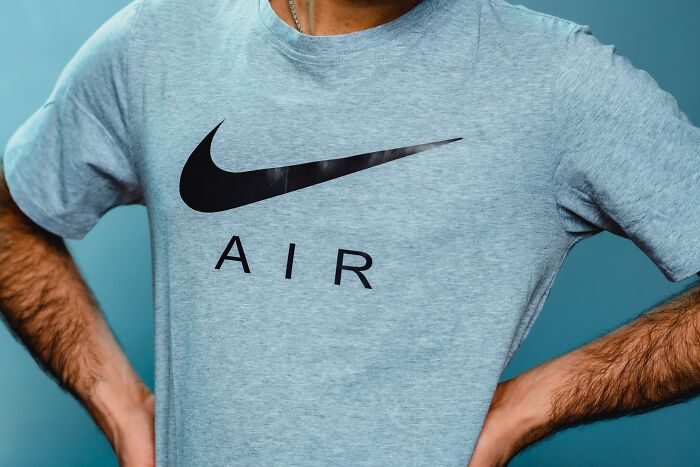 Actual Nike shirts or shoes.. was drawing my own swoosh for years..
Actual Nike shirts or shoes.. was drawing my own swoosh for years..
Eh, I kinda prefer thrifting. Lots of hidden gems for really low prices
Load More Replies...I like the drawn Nike swoosh tho ! Nike is c**p ! They don’t deserve all that money ! I tried on a pair of my kids $150 ( he bought them himself with birthday money ) they hurt my feet immediately! I don’t even know how my son walks around in them
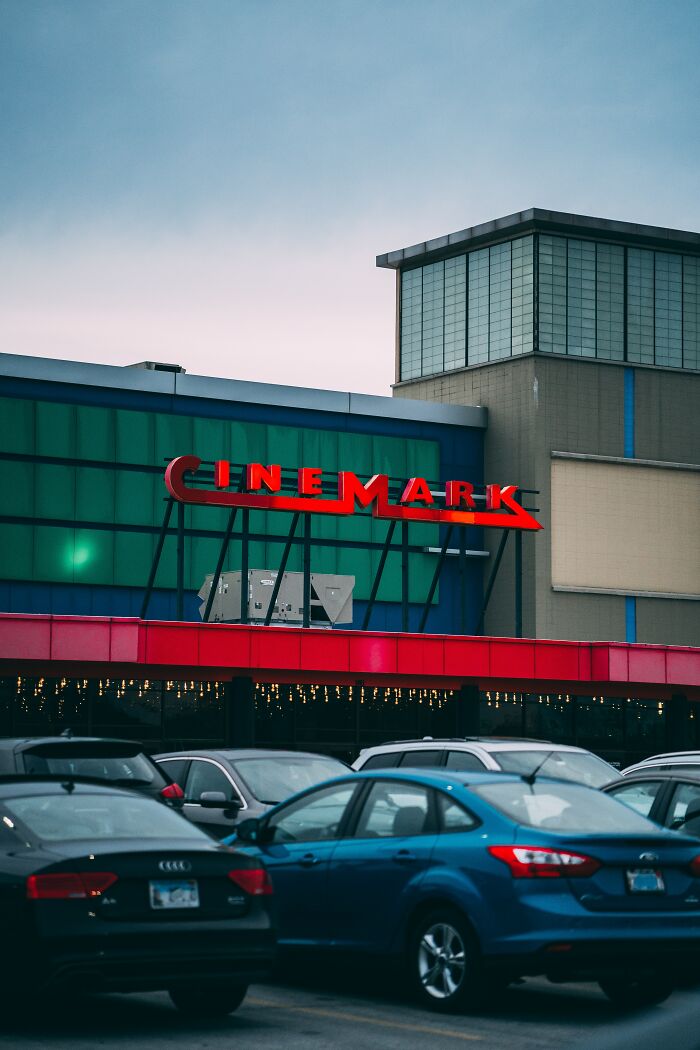 We would go to the movies from time to time, but we went to AMC once and the concrete/pavement outside the building had reflective specs in it.
Pair that with street lamps, and a darkening sky and I thought we made it.
We would go to the movies from time to time, but we went to AMC once and the concrete/pavement outside the building had reflective specs in it.
Pair that with street lamps, and a darkening sky and I thought we made it.
Going to the theater itself is already a luxury. It's one of those things I could only do when I started earning enough and could "reward" myself.
We had a $1.50 movie theater that played older movies ( back when movies took along time to go from theater to cassette) it was great !
I remember as a child going with my aunt and cousins to a downtown theatre where the cost of admission was an empty bread wrapper! That would have been in the early 1970's in Eugene, Oregon. Wish I could remember what we saw, but the thing that stuck out was carrying my bread wrapper.
This is why I still don't go to the movies much. Maybe once a year? I just can't turn off my mind about the astronomical cost of it all.
I went to the movies once with my family and that was to see Jumanji. Every other time I had the opportunity to go to the movies someone else paid for me ie my aunt, my neighbour, bf at the time etc. Was such a treat.
New clothes! I always had hand-me-downs from our more affluent neighbors. But for my birthday, my grandparents would sometimes take me out to but a new outfit or new shoes. Always a fun adventure! Also, going out to Friendly's. We got to do it once a year when report cards came in. :)
Twice a year we would go down to our local St Vinnies, second hand store. We would get shoes for school and school uniforms. And one other set of clothes and they had to laast.
Kraft Macaroni and Cheese as opposed to store brand. Soda out of a can. Any restaurant where you sit down and get a menu. Having the AC on in the car.
Drinking something other than tap water with a meal. Like juice or squash. We never, ever did this, and if I ever do it in adulthood it feels wildly luxurious - like, you already have the flavour from the food, why do you need flavour from the drink as well?
Butter on toast with sugar. Also, getting to watch a late-night PBS movie WITH popcorn.
Having more than a five minute long shower. Five was the maximum like my dad would start banging on the door at 10 minutes he'd shut the hot water off.
My dad thought if the water was warm enough for him, it should be enough for us. Not because of costs but because of environment. But I always had difficulty washing the shampoo out of my hair (going down to my hips). I hated it. And I loved showering at my boyfriends. But I got to know that I'm able to only wash my hair every few weeks and I was the only teen to have no problem with the cold water at the public (outdoor) pool
Omg, SAME! I still try to make my showers as short and infrequent as possible, which I'm kind of ashamed of.
My record was 2 minutes. I now use this method for camping showers at the State Park that cost quarters. Fill a basin or bucket with cold water, wet your hair & self with it and lather up, scooping up the water try to rinse out as much shampoo & soap as you can - then finally stand under the hot water to get the rest off.
I wasn’t able to afford avocados, now every-time I buy some I’m like ‘Wow that’s cool I can take that’. Like. Every. Time.
I grew up circa OG Cabbage Patch mania. Looking back there was never a more clearly demarcated line behind which the poor kids stood bystander. That line stuck with us right through 12th grade. The power behind that pre-insta phenomenon was unimaginable.
I LOVE avocados, but when I was in my early 20's and could afford the occasional avocado......boom, developed an allergy. Can't eat them now. I got to experience them for maybe a year or so before I figured out that it was avocados that made my mouth go all numb and tingly.
I grew up broke and am incredibly fortunate to have money as an adult. Meals out when I was a kid were huge, I think I only really remember three in my whole childhood, so as an adult who does largely whatever I like, going out to dinner still thrills me, always get dressed up, make the most of it etc.
A motel room. We stayed one night at the Pink Flamingo in Ocean City NJ and felt like millionaires
54 years old, and I have never even stayed in a place that had room service IIRC. Closest thing would be a motel that offers continental breakfast.
Load More Replies... 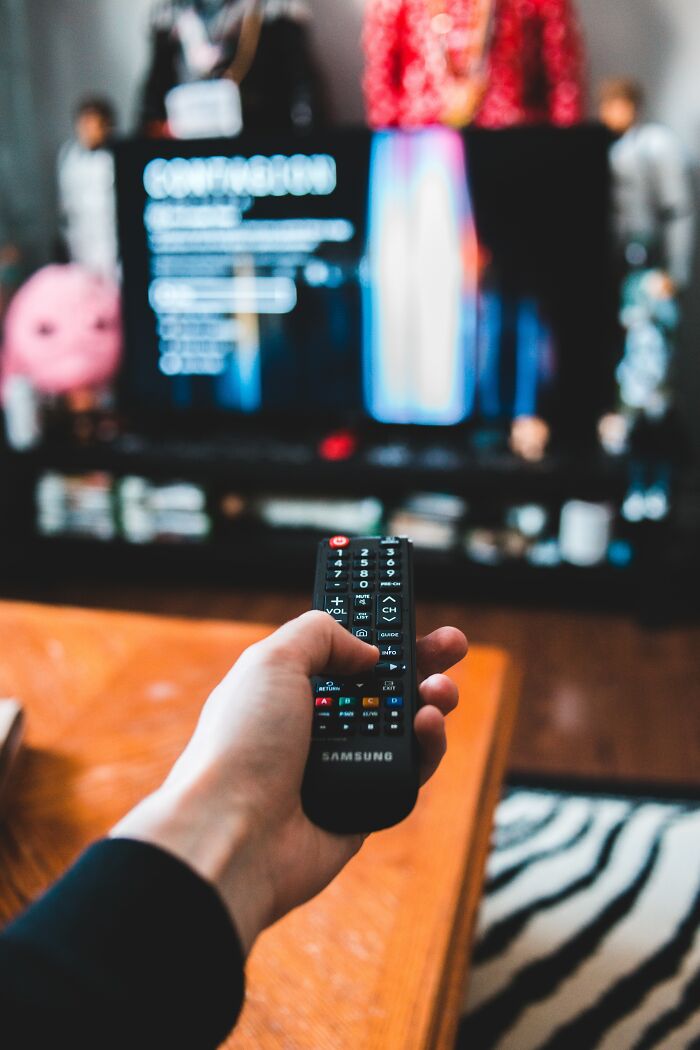 Cable. For 15 years my only South Park experience was on VHS tapes
Cable. For 15 years my only South Park experience was on VHS tapes
We never had cable when I was growing up. My aunt and uncle had it I thought they where rich but have learned they just had all there peas in the pod and had a steady income
I remember seeing Home Box Office (now called HBO) and Showtime as a kid, but didn't experience actual cable TV for myself until I was an adult. Haven't had it since 2010, and don't miss it a bit. I have a huge DVD collection (courtesy of my ex), but rarely watch any of it.
All of that 80s tech access for me. No cable. No microwave. No VCR. No Atari/Nintendo. And CERTAINLY no computer. Only the super rich kids had those things!
This is a weird one, but seasonings and spices in cooking. My mother raised me by herself so a lot of the time our meals were the bare minimum. Lots of cheap spaghetti and sauce. Her main priority was just feeding me. I didn't like meat until I made friends who would invite me over for dinner and I was able to experience seasonings.
Anything I could live without. Especially skincare. My skin has become amazing since I've had the disposable income to buy better products. It still makes me feel bad though
At the very least, sunblock--- a whole lot of wrinkles are caused by skin damage, not to mention cancer.
Load More Replies...As a European, vacation in a foreign country. Not overseas, just a different country, even neighboring. Also, staying at a hotel - I experienced that for the first time as a 16-year-old and felt like a VIP, not having to cook for yourself, getting to choose from a breakfast buffet, etc. As for the vacation, my classmates went to Greece, Italy, Canary Islands, Turkey, Thailand, etc... while I went to my grandparents or stayed at a cheap rental apartment near the destination of our vacation (in our country). Related to this, flying. I first flew when I was 21 and making money on my own.
I have never been to a different country and don't see myself travelling overseas in the near future.
It's a great experience, if you are able to access it. Factors like being a woman, physical ability, and, well, a global pandemic might make it harder right now. But it helps build empathy and perspective, to be someplace so very different, and realize that your own experiences aren't definitive or even "the norm." I once did a whole financial breakdown with my family to show how a trip to Paris was far, far less expensive than one of their Disney trips, but "We could just go to the Paris casino in Vegas, so why bother?" If you decide it's a possibility for you, Foxxy, I hope you can manage some overseas adventures in the future. It changes us in the best ways.
Load More Replies...I didn't have the emotional maturity to identify this as a kid, but looking back, I realize I had imposter syndrome if I got to go somewhere nice like a hotel or restaurant. It felt like the employees and other guests would look down on me, because they'd know I didn't belong there.
I have never been further east than Montana, and have only gone to Canada (other country). Used to want to go to Mexico, Spain, Ireland, Scotland. Now I'm happy being a homebody, and only really want to find my ancestral home in Scotland. Costs have a lot to do with it, but safety factors do, too.
We went to like Tennessee we I was little and when I was smaller we went to Virginia. Do not remember Virginia, barely remember Tennessee. After that we did not go on any vacation. With my family now grown up I really want it to be something my kids will remember but at the same time wait for a good time and enough money. But lord do I want to go on a vacation
Off topic, but I've never thought about what you call travelling to another country when they are on the same continent as you. Any country I travel to is overseas.
Getting a one month RuneScape membership for my birthday once. Im still living on that high.
Reading these truly makes me realize how much I am able to give to my child that I take COMPLETELY for granted...and so thankful and grateful to have the opportunity to do so.
Toblerone chocolate
This reminds me of mine. Four our birthdays, we got to choose candy or a toy. Toys came from the donation/thrift stores, but I would always choose the toblerone bar because it looked the fanciest. I could show it off to friends and everyone was so happy to share and have a piece. Truly king for a day or those 30 seconds at the beginning of school. Even though I am way better off now, I still look forward most to my chocolate bar every year.
We used to watch the candy dispenser, because every 4th turn it spits out double, That was our half penny spend for the month.
I will probably be downvoted for this... but I think some people don't know what poor is. Not being able to have an international vacation is not poor. It might be not rich, but it certainly does not mean you are poor. Same as buying brand name clothes and eating in restaurants.
I agree with you. There is so much we take for granted
Load More Replies...1. This made me sad. 2. I appreciate all my single mother has done for me my whole life. She even worked 7!!! Different jobs for my first year at college. Which most was covered with academic scholarships. 3. Whenever possible- I help anyone in need. I'm not super well-off by any means- but never been poor like some have. I ask my oldest all the time- if there's someone at school- or many- that could use help. Please get me a name- and I try to help out - whether it be food or clothing- or including them and their family for meals. Nothing in public- as I don't want to draw attention to any of it. But so many people have never been really poor- and my grandparents taught me to always help others whenever possible. I wish I could help more...
Ill always remember being in middle school or high school and getting the box of donated clothes delivered to our house (as we were the poorest at the school or something) and wearing a sweater from the box only to have one of the popular kids bring it up in front of everyone that I was wearing her free hand me downs... I still think about that sometimes
Oosh. That sucks. Kids can be very cruel because they just don't get it. 😔
Load More Replies...with a divorce mom with no child support being paid working at a job that paid around $8K per year in the 60s and raising three kids, we did without and learned how to make things go far. but, the one thing that was special was once in a while being able to get the hot school lunch. it was mostly brown bag for us with whatever we had available. so, when my kid was in school i made sure to put at least $50 each month on his account and tell him that he could buy lunch for someone without but to make it last. unfortunately, i also had to warn him about kids who might take advantage of his generosity which he found out about the hard way. in any case, i wanted to make sure that he could eat the school lunch or the a la carte menu as well as making sure anyone else who was hungry. the lunch ladies also noticed his generosity and made sure that he was "taken care of" if the balance wasn't enough for the day.
We struggled a lot when I was a kid. We lived with a family friend up until I was 8 years old, when we could finally afford our own place. I thought it was weird that our family friend wasn't moving with us, but my dad explained that we lived with him because he was nice enough to open his home to a struggling family of 5. I will always be appreciative and grateful for "Uncle" Don, may he rest in peace.
This made me reason how good my life is. My dad was raise my an abusive dad who some how died . He wasn’t well off and was a trouble maker because of this . His parents had to always buy him new glasses and 5 kids had to sleep in two rooms. They didn’t have nice stuff every thing was either pass me down or donated. Now my dad has enough money to only buy name brand stuff . Buy 50 dollar shorts. All Nike and Adidas shoes. Life is great and I know he is making sure me and my sister live the life he wished for.
My parents were frugal. We didn't run the air in the summer (in the South of all places) to save money. My mom bought five pairs of jeans every year before school started. I got two pairs of shoes every year. Buying stuff on a whim was unheard of in my house. My father (parents were divorced) was the one who bought all the early gaming consoles I owned. Now, as a parent myself, we try to make sure our son has what he wants but still be frugal ourselves.
Having a hamburguer with my mom once every two months, as a reward for getting good grades at basic school. Even today when I eat a hamburguer still remember my mom's expression. It was a mix between pride and sadness. Today, my greatest reward and the best thing in my life is taking my mom out for dinner, just because I feel like it.
I will probably be downvoted for this... but I think some people don't know what poor is. Not being able to have an international vacation is not poor. It might be not rich, but it certainly does not mean you are poor. Same as buying brand name clothes and eating in restaurants.
I agree with you. There is so much we take for granted
Load More Replies...1. This made me sad. 2. I appreciate all my single mother has done for me my whole life. She even worked 7!!! Different jobs for my first year at college. Which most was covered with academic scholarships. 3. Whenever possible- I help anyone in need. I'm not super well-off by any means- but never been poor like some have. I ask my oldest all the time- if there's someone at school- or many- that could use help. Please get me a name- and I try to help out - whether it be food or clothing- or including them and their family for meals. Nothing in public- as I don't want to draw attention to any of it. But so many people have never been really poor- and my grandparents taught me to always help others whenever possible. I wish I could help more...
Ill always remember being in middle school or high school and getting the box of donated clothes delivered to our house (as we were the poorest at the school or something) and wearing a sweater from the box only to have one of the popular kids bring it up in front of everyone that I was wearing her free hand me downs... I still think about that sometimes
Oosh. That sucks. Kids can be very cruel because they just don't get it. 😔
Load More Replies...with a divorce mom with no child support being paid working at a job that paid around $8K per year in the 60s and raising three kids, we did without and learned how to make things go far. but, the one thing that was special was once in a while being able to get the hot school lunch. it was mostly brown bag for us with whatever we had available. so, when my kid was in school i made sure to put at least $50 each month on his account and tell him that he could buy lunch for someone without but to make it last. unfortunately, i also had to warn him about kids who might take advantage of his generosity which he found out about the hard way. in any case, i wanted to make sure that he could eat the school lunch or the a la carte menu as well as making sure anyone else who was hungry. the lunch ladies also noticed his generosity and made sure that he was "taken care of" if the balance wasn't enough for the day.
We struggled a lot when I was a kid. We lived with a family friend up until I was 8 years old, when we could finally afford our own place. I thought it was weird that our family friend wasn't moving with us, but my dad explained that we lived with him because he was nice enough to open his home to a struggling family of 5. I will always be appreciative and grateful for "Uncle" Don, may he rest in peace.
This made me reason how good my life is. My dad was raise my an abusive dad who some how died . He wasn’t well off and was a trouble maker because of this . His parents had to always buy him new glasses and 5 kids had to sleep in two rooms. They didn’t have nice stuff every thing was either pass me down or donated. Now my dad has enough money to only buy name brand stuff . Buy 50 dollar shorts. All Nike and Adidas shoes. Life is great and I know he is making sure me and my sister live the life he wished for.
My parents were frugal. We didn't run the air in the summer (in the South of all places) to save money. My mom bought five pairs of jeans every year before school started. I got two pairs of shoes every year. Buying stuff on a whim was unheard of in my house. My father (parents were divorced) was the one who bought all the early gaming consoles I owned. Now, as a parent myself, we try to make sure our son has what he wants but still be frugal ourselves.
Having a hamburguer with my mom once every two months, as a reward for getting good grades at basic school. Even today when I eat a hamburguer still remember my mom's expression. It was a mix between pride and sadness. Today, my greatest reward and the best thing in my life is taking my mom out for dinner, just because I feel like it.

 Dark Mode
Dark Mode 

 No fees, cancel anytime
No fees, cancel anytime 










































